In today’s world, the food we consume is often laden with pesticides, herbicides, fungicides, and other chemical residues. Even organic produce can carry traces of environmental pollutants (Lu et al., 2018). These chemicals accumulate in our bodies over time, contributing to a phenomenon known as "toxic burden," which can negatively impact health and wellbeing. One simple yet effective way to reduce this toxic burden is by thoroughly washing fruits and vegetables with a specialised produce wash designed to remove chemical residues. The team at FROM WITHIN explore the evidence supporting the importance of reducing chemical exposure through proper washing of fruits and veggies, and its benefits for long term health:
Pesticides and their health effects
Pesticides are widely used in conventional agriculture to protect crops from pests and diseases. However, many of these chemicals have been linked to adverse health outcomes, including:
Endocrine disruption – Some pesticides interfere with hormone function, potentially leading to reproductive issues, developmental delays, and metabolic disorders (Mnif et al., 2011).
Neurotoxicity – Certain organophosphate pesticides have been associated with cognitive impairments and increased risk of neurodegenerative diseases including Parkinson’s (Mostafalou & Abdollahi, 2017).
Carcinogenicity – Prolonged exposure to pesticides such as glyphosate has been classified as "probably carcinogenic" by the International Agency for Research on Cancer (IARC, 2015).
Residue Levels in Fruits & Veggies
Internationally, organisations such as the Environmental Working Group (EWG) publish annual lists including the "Dirty Dozen", highlighting fruits and vegetables with the highest pesticide residues (EWG, 2023). While these lists are U.S. focused, Australia faces similar concerns. In Australia, pesticide use is regulated by the Australian Pesticides and Veterinary Medicines Authority (APVMA), but testing by Food Standards Australia New Zealand (FSANZ) has detected pesticide residues on produce, including commonly consumed items such as strawberries, spinach, and apples (FSANZ, 2021). A 2020 study by the University of Queensland found that some Australian-grown produce contained multiple pesticide residues, reinforcing the need for thorough washing (Osei et al., 2020). Even organic produce, while generally lower in synthetic pesticides, can still carry environmental contaminants, making proper washing essential for all fruits and vegetables.
Effectiveness of Different Washing Methods
Research indicates that rinsing produce under tap water alone is insufficient to remove all pesticide residues. A study by Yang et al. (2017) found that:
Water rinsing removed only 10-20% of surface pesticides.
Baking soda solution (1%) was more effective, removing up to 80-96% of certain pesticides after 12-15 minutes of soaking.
Commercially produce washes containing natural surfactants (e.g., citric acid, vinegar, or plant-based cleansers) were highly effective in breaking down wax-coated pesticide residues.
Specialised fruit and vegetable washes are formulated to:
· Emulsify wax and pesticide coatings – Many pesticides are designed to adhere to produce surfaces; washing them helps break these down.
· Neutralise chemicals – Some washes use activated charcoal or clay to bind and remove toxins.
· Remove microbial contaminants – Washes can also reduce bacteria like E. coli and Salmonella (Ölmez & Kretzschmar, 2009).
Benefits of Washing Your Fruits and Veggies
Lowering toxic accumulation: By minimising pesticide intake, we reduce the body’s detoxification burden on the liver and kidneys. A study by Curl et al. (2015) found that individuals who consumed organic produce had significantly lower urinary pesticide levels compared to those eating conventionally grown food.
Improved gut health: Pesticides can often disrupt the gut microbiome, leading to dysbiosis, inflammation, and “leaky gut syndrome” (Kittle et al., 2018). By washing fruits and veggies, this risk is reduced and/or mitigated.
Enhanced nutrient absorption: Some pesticides interfere with nutrient absorption (e.g., glyphosate chelates minerals such as magnesium and zinc). Cleaner produce ensures better nutrient bioavailability (Samsel & Seneff, 2013).
Practical Tips for Reducing Chemical Exposure Without Sacrificing Nutrients
1. Use a Natural Fruit & Vegetable Wash
Look for food-grade, plant-based formulas or a DIY soak (1 tsp baking soda + 2 cups water for 12-15 minutes) which can significantly reduce pesticides without nutrient loss (Yang et al., 2017).
For waxy produce (e.g., apples, cucumbers), add a splash of apple cider vinegar to help break down residues.
At FROM WITHIN we are passionate about washing our fruits and veggies and having been using Koala Eco Fruit & Vegetable Wash for the past 7 years.
2. Scrub Firm Produce with a Brush
At FROM WITHIN we use and love Koala Eco bamboo scrubbing brush, it’s not only eco-friendly but gets the job done.
Use a clean brush (I have one dedicated to fruits and veggies) under running water to remove residues from apples, cucumbers, carrots, and potatoes, where the skin is nutrient rich.
3. Soak Soft Produce
Submerge kale, spinach, berries, strawberries etc.. in a fruit and veggie wash or use cold water + baking soda solution (1%) for 12-15 minutes, then rinse. This removes up to 96% of certain pesticides without degrading water-soluble vitamins (Yang et al., 2017).
4. Prioritise Organic for the "Dirty Dozen"
If budget allows, buy organic for thin-skinned, high-residue produce (e.g., strawberries, spinach, kale) but always wash them—organic doesn’t mean chemical-free.
5. Rinse Under Running Water for 30+ Seconds
Even a thorough rinse removes some surface pesticides. For grapes or cherries, agitate them in a colander while rinsing and then soak in a fruit and veggie wash.
6. Trim Outer Leaves (When Applicable)
For lettuce or cabbage, discard outer layers where residues concentrate, but keep the nutrient-dense inner leaves intact.
7. Keep the Skins On
Fibre and antioxidants (including flavonoids and polyphenols) are often highest in the skin (e.g., apple peels contain 4x more vitamin K and 30% more magnesium than the flesh) (USDA FoodData Central, 2023).
Peeling can expose the inner flesh to contamination during handling, negating some benefits.
Reducing the chemical load on our bodies starts with mindful food preparation. Washing fruits and vegetables with an effective fruit and veggie wash can significantly lower pesticide exposure, supporting long-term health by decreasing toxic burden, improving gut health, and enhancing nutrient absorption. While opting for organic produce is beneficial, proper washing remains a critical step for everyone. By adopting these practices, you can take a proactive step toward better health and wellbeing.
References
Curl, C. L., Beresford, S. A. A., Fenske, R. A., Fitzpatrick, A. L., Lu, C., Nettleton, J. A., & Kaufman, J. D. (2015). Estimating pesticide exposure from dietary intake and organic food choices: The Multi-Ethnic Study of Atherosclerosis (MESA). Environmental Health Perspectives, 123(5), 475–483. https://doi.org/10.1289/ehp.1408197
Environmental Working Group (EWG). (2023). Dirty Dozen™ and Clean Fifteen™. https://www.ewg.org/foodnews/
International Agency for Research on Cancer (IARC). (2015). IARC Monographs Volume 112: Evaluation of five organophosphate insecticides and herbicides. https://www.iarc.who.int/
Kittle, R. P., McDermid, K. J., Muehlstein, L., & Balazs, G. H. (2018). Effects of glyphosate herbicide on the gastrointestinal microflora of Hawaiian green turtles (Chelonia mydas) Linnaeus. Marine Pollution Bulletin, 127, 170–174. https://doi.org/10.1016/j.marpolbul.2017.11.030
Lu, C., Toepel, K., Irish, R., Fenske, R. A., Barr, D. B., & Bravo, R. (2018). Organic diets significantly lower children’s dietary exposure to organophosphorus pesticides. Environmental Health Perspectives, 114(2), 260–263. https://doi.org/10.1289/ehp.8418
Mnif, W., Hassine, A. I. H., Bouaziz, A., Bartegi, A., Thomas, O., & Roig, B. (2011). Effect of endocrine disruptor pesticides: A review. International Journal of Environmental Research and Public Health, 8(6), 2265–2303. https://doi.org/10.3390/ijerph8062265
Mostafalou, S., & Abdollahi, M. (2017). Pesticides: An update of human exposure and toxicity. Archives of Toxicology, 91(2), 549–599. https://doi.org/10.1007/s00204-016-1849-x
Ölmez, H., & Kretzschmar, U. (2009). Potential alternative disinfection methods for organic fresh-cut industry for minimizing water consumption and environmental impact. LWT - Food Science and Technology, 42(3), 686–693. https://doi.org/10.1016/j.lwt.2008.08.001
Samsel, A., & Seneff, S. (2013). Glyphosate’s suppression of cytochrome P450 enzymes and amino acid biosynthesis by the gut microbiome: Pathways to modern diseases. Entropy, 15(4), 1416–1463. https://doi.org/10.3390/e15041416
Yang, T., Doherty, J., Zhao, B., Kinchla, A. J., Clark, J. M., & He, L. (2017). Effectiveness of commercial and homemade washing agents in removing pesticide residues on and in apples. Journal of Agricultural and Food Chemistry, 65(44), 9744–9752. https://doi.org/10.1021/acs.jafc.7b03118

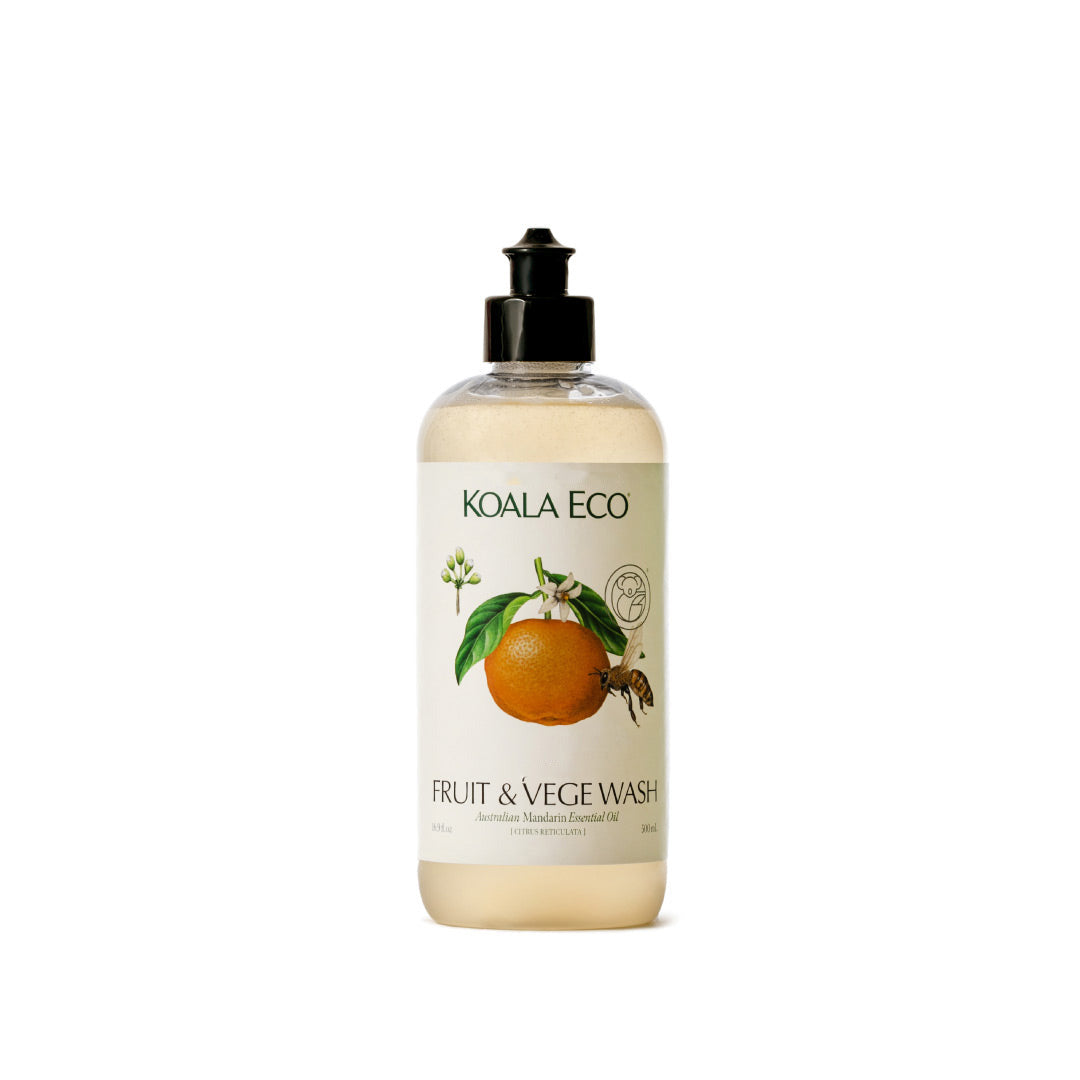
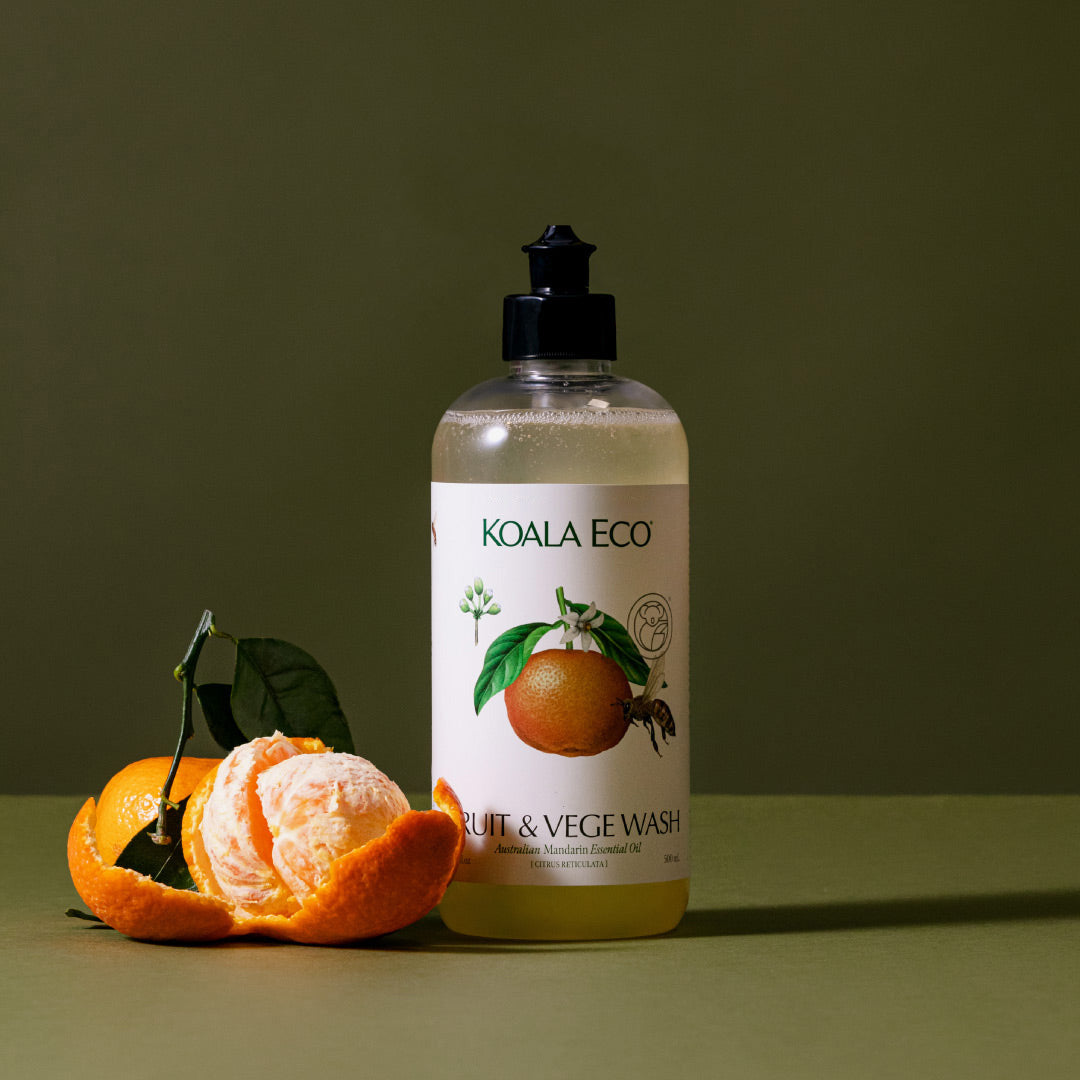
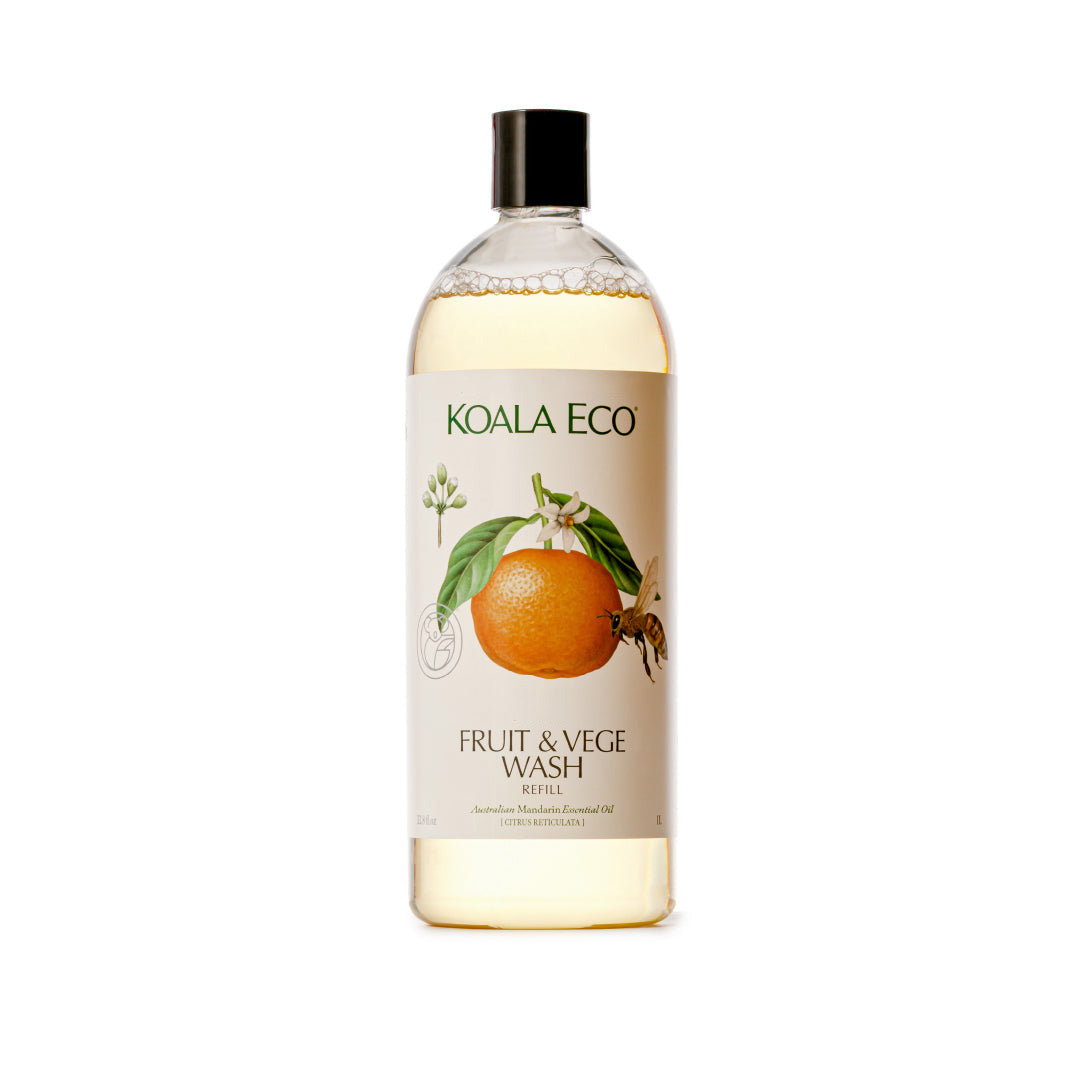
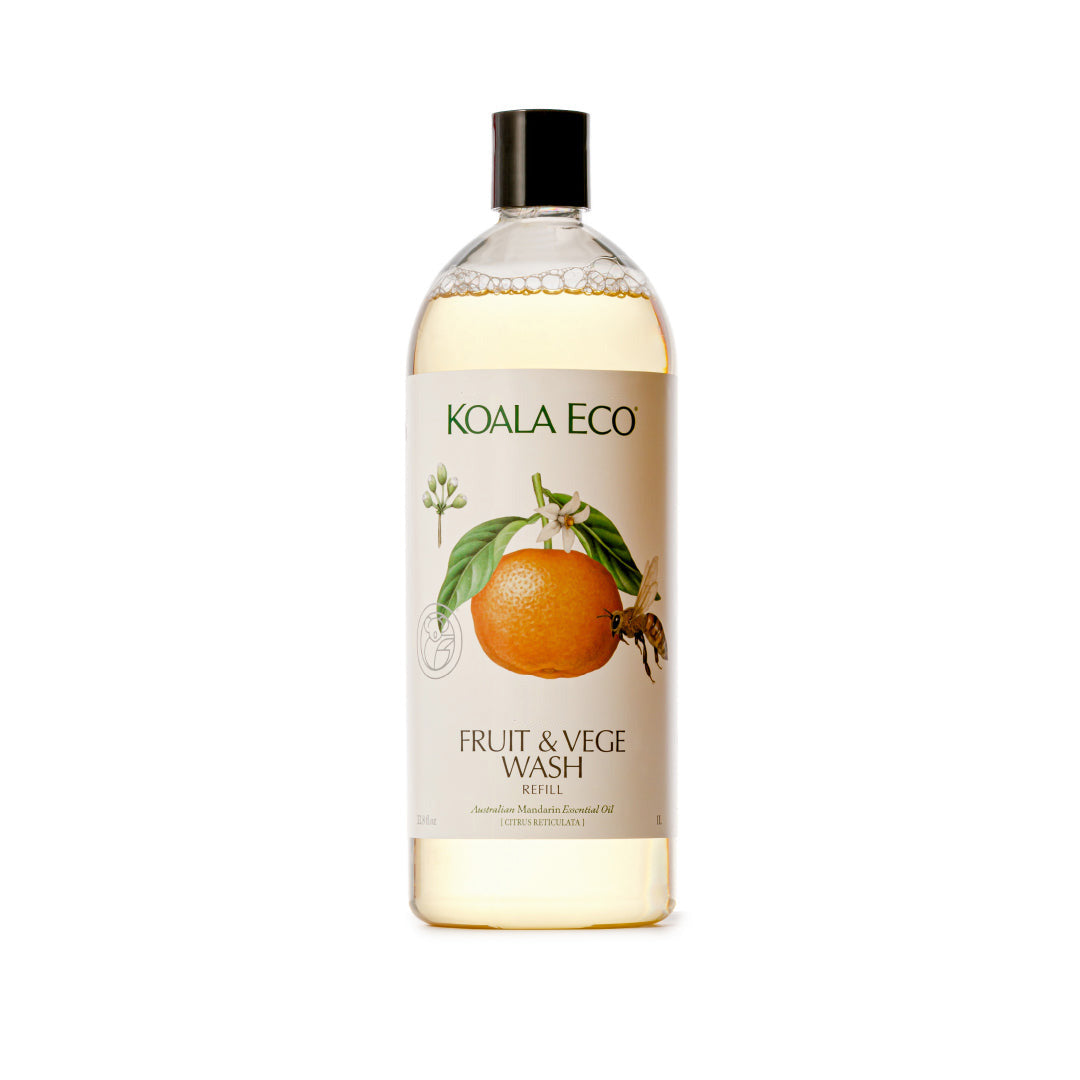
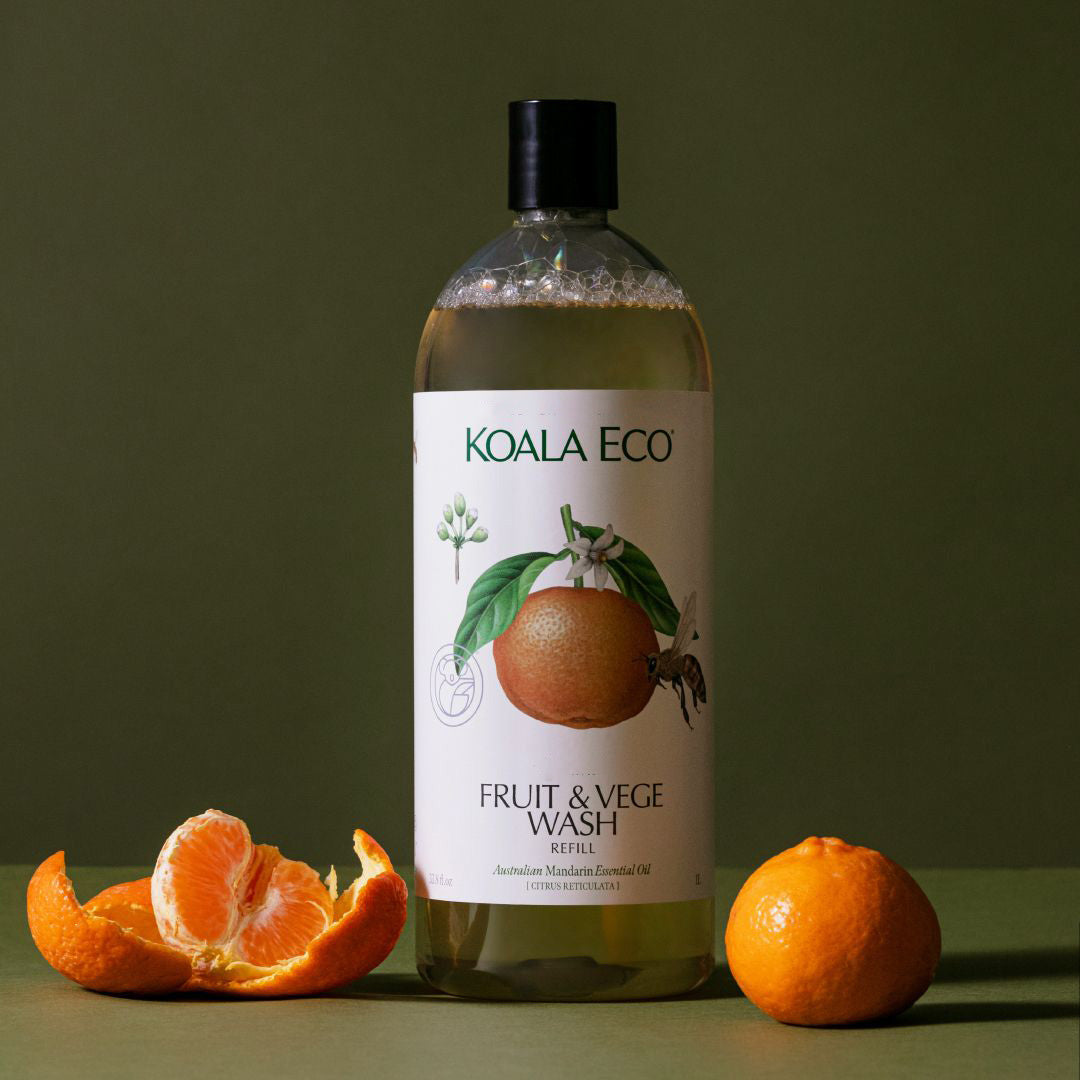







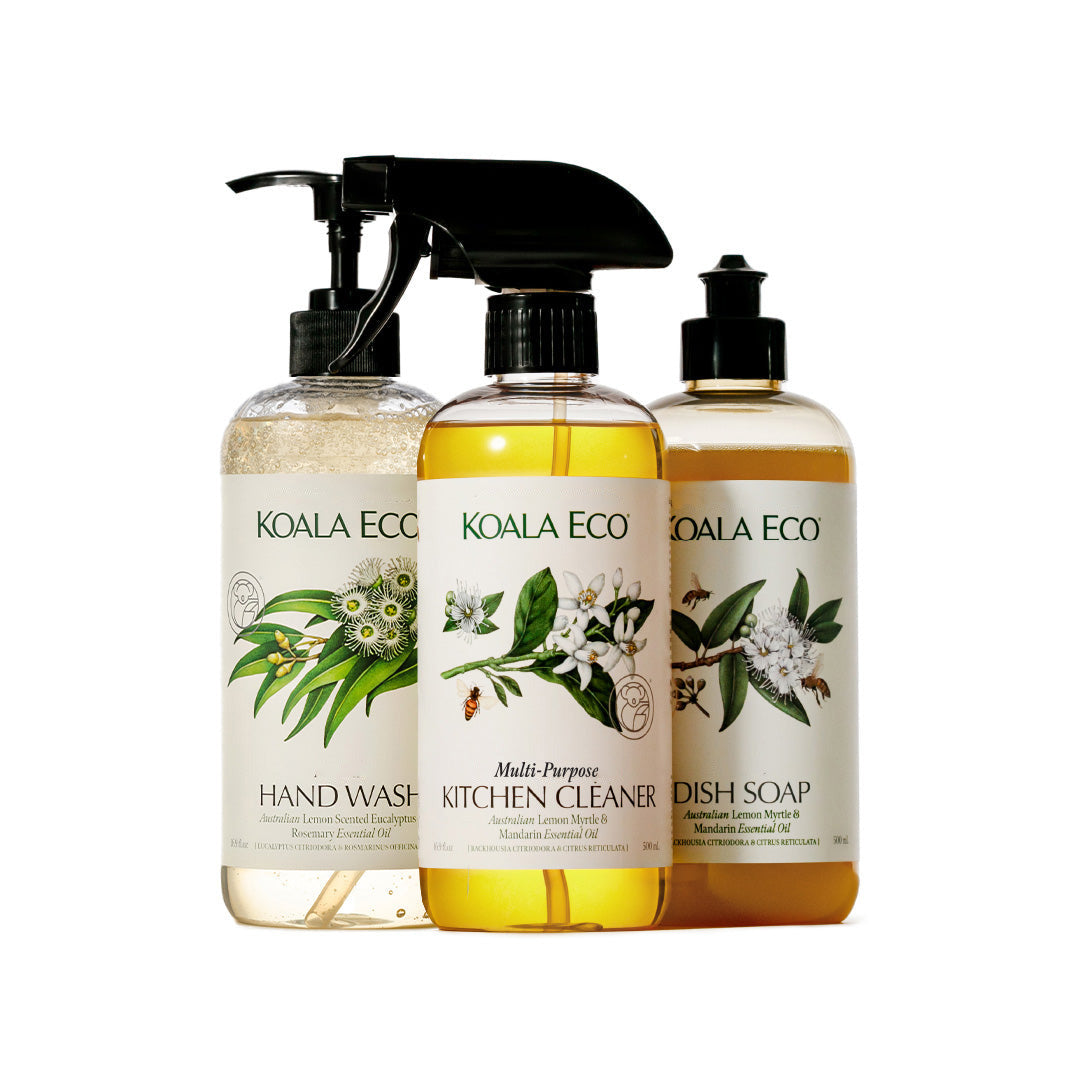
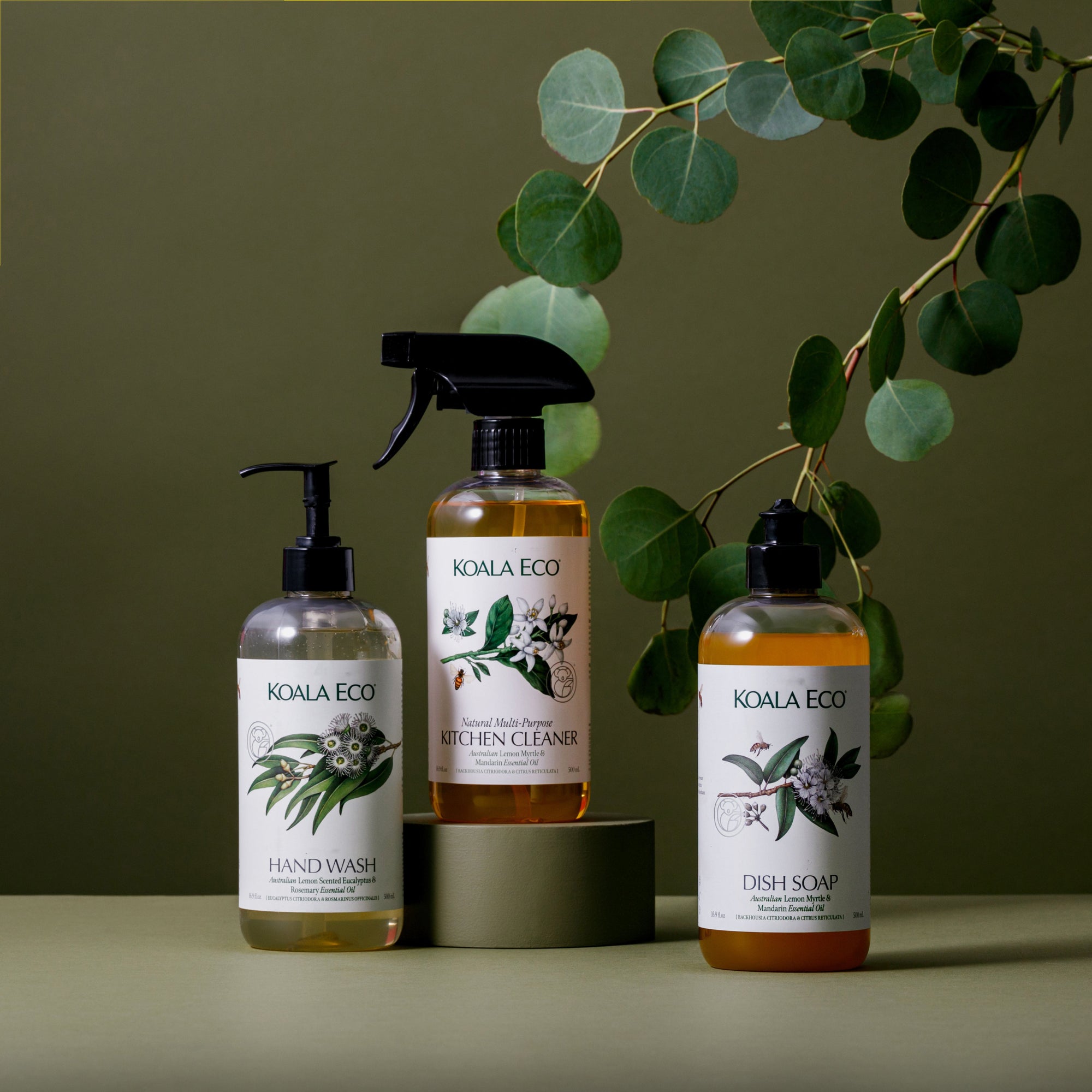
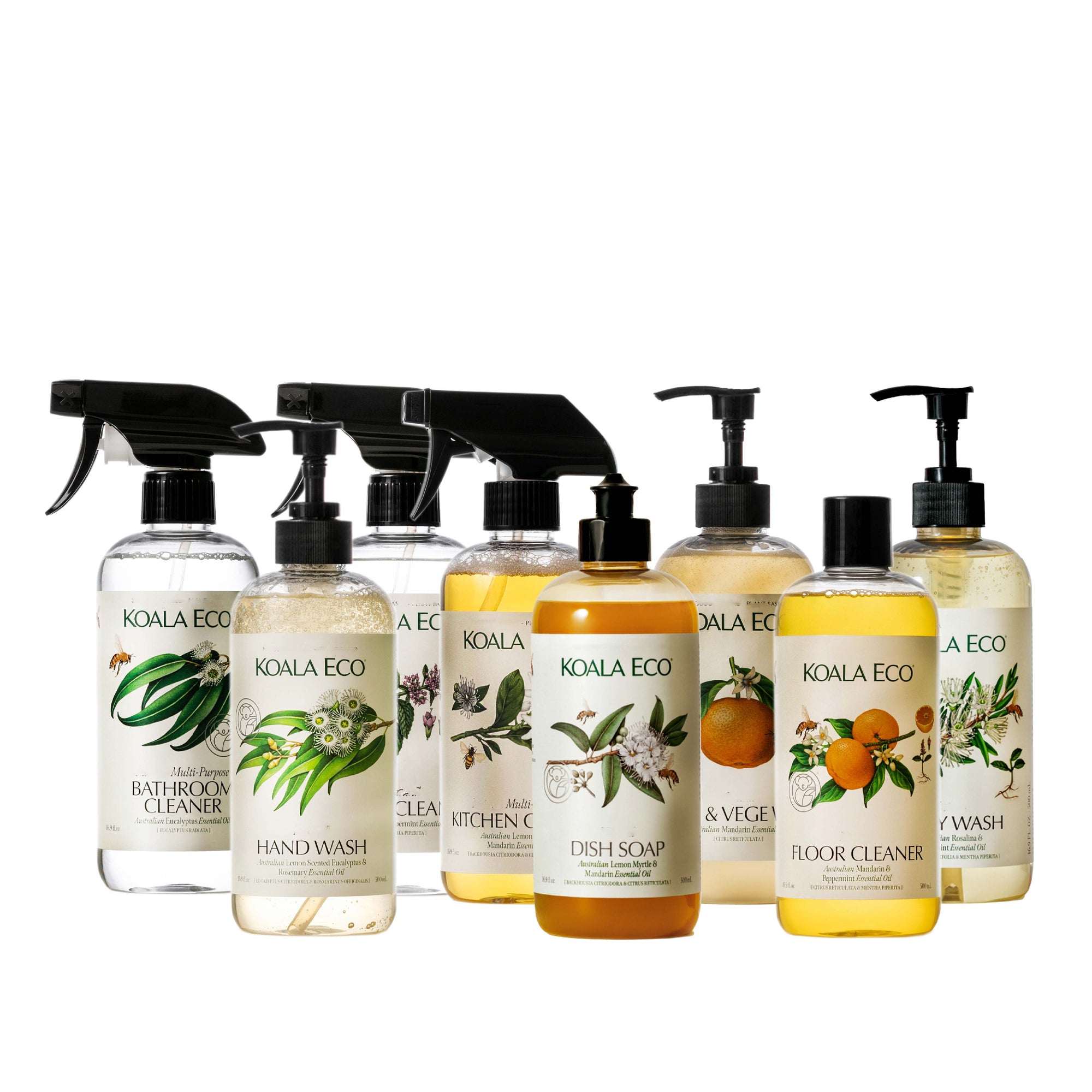
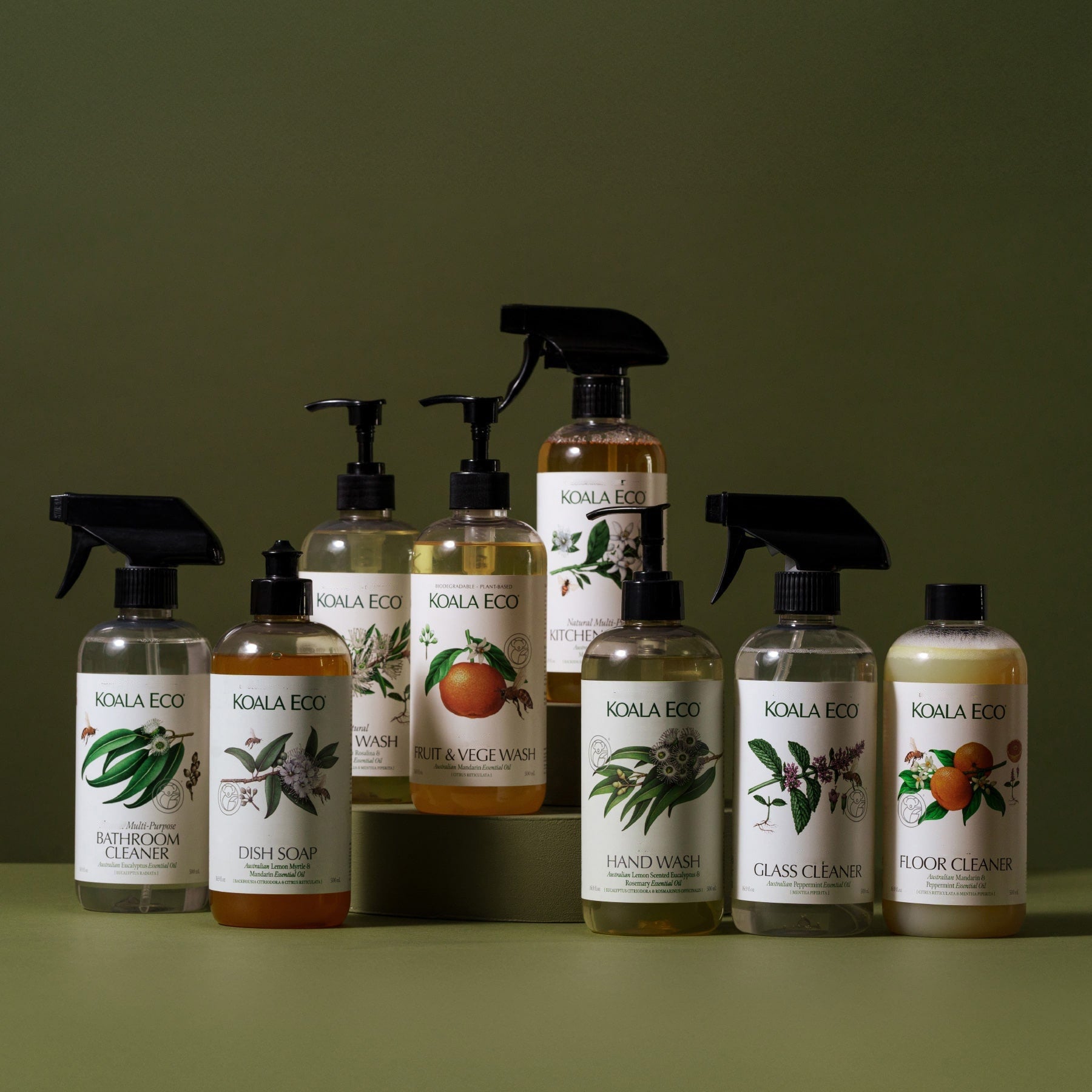
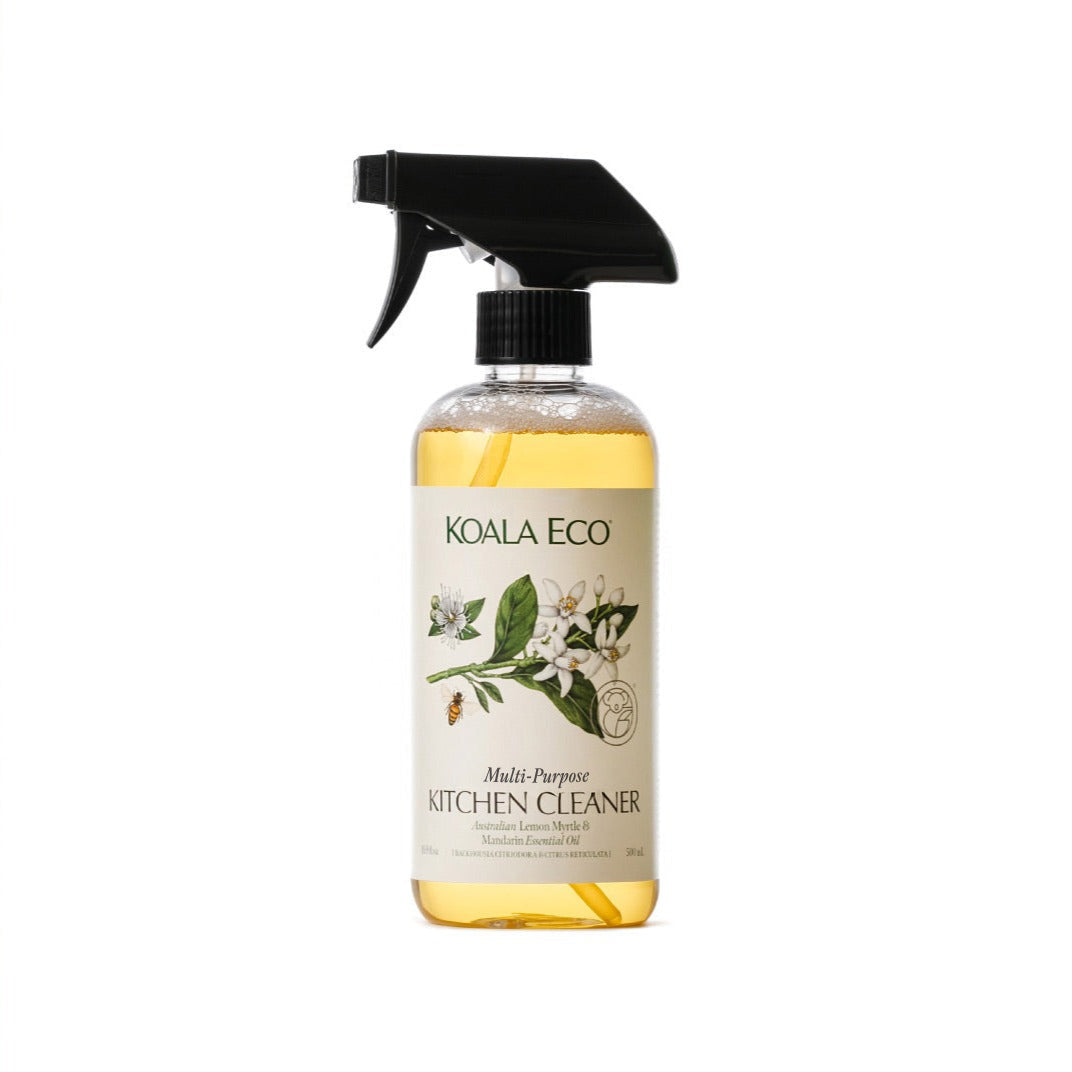
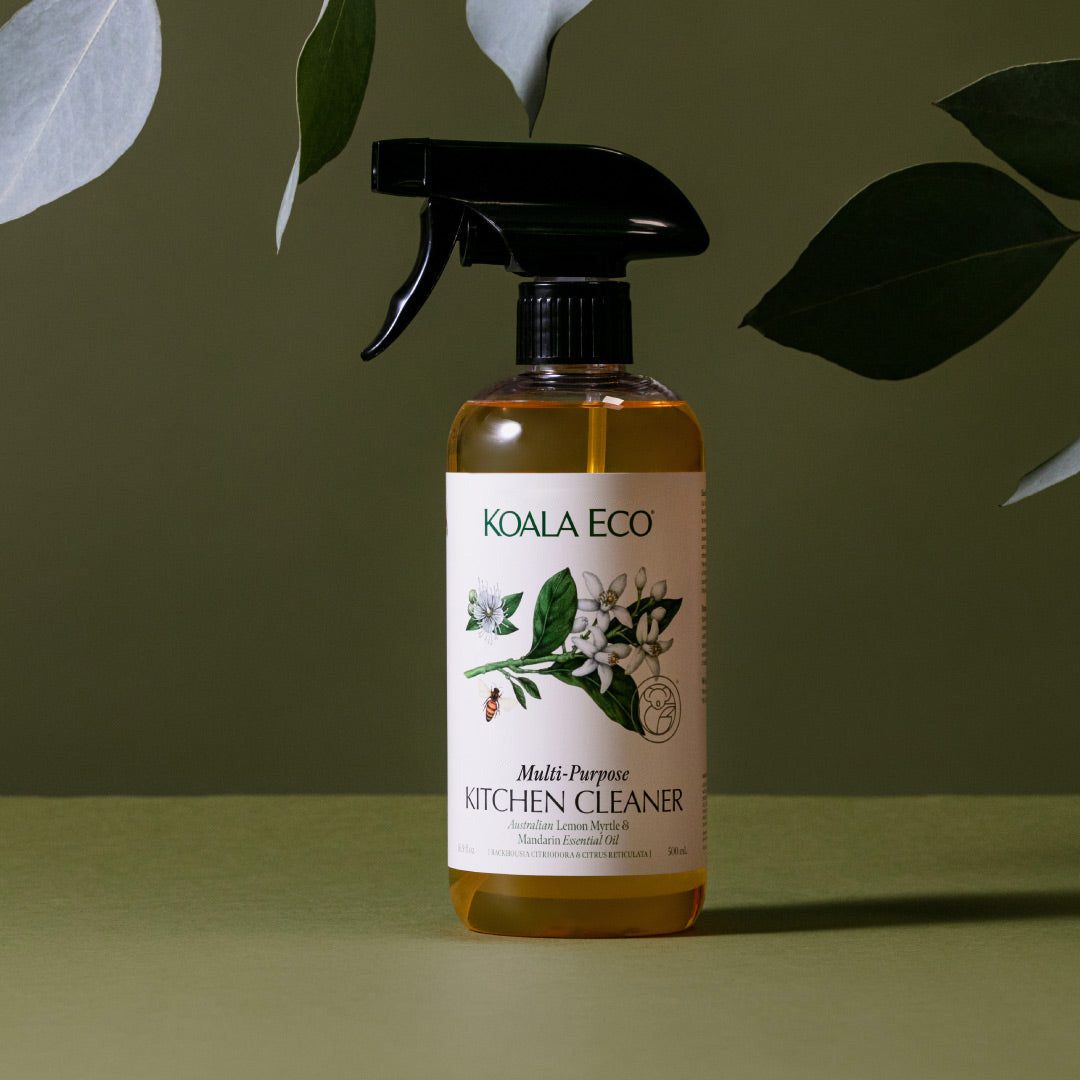
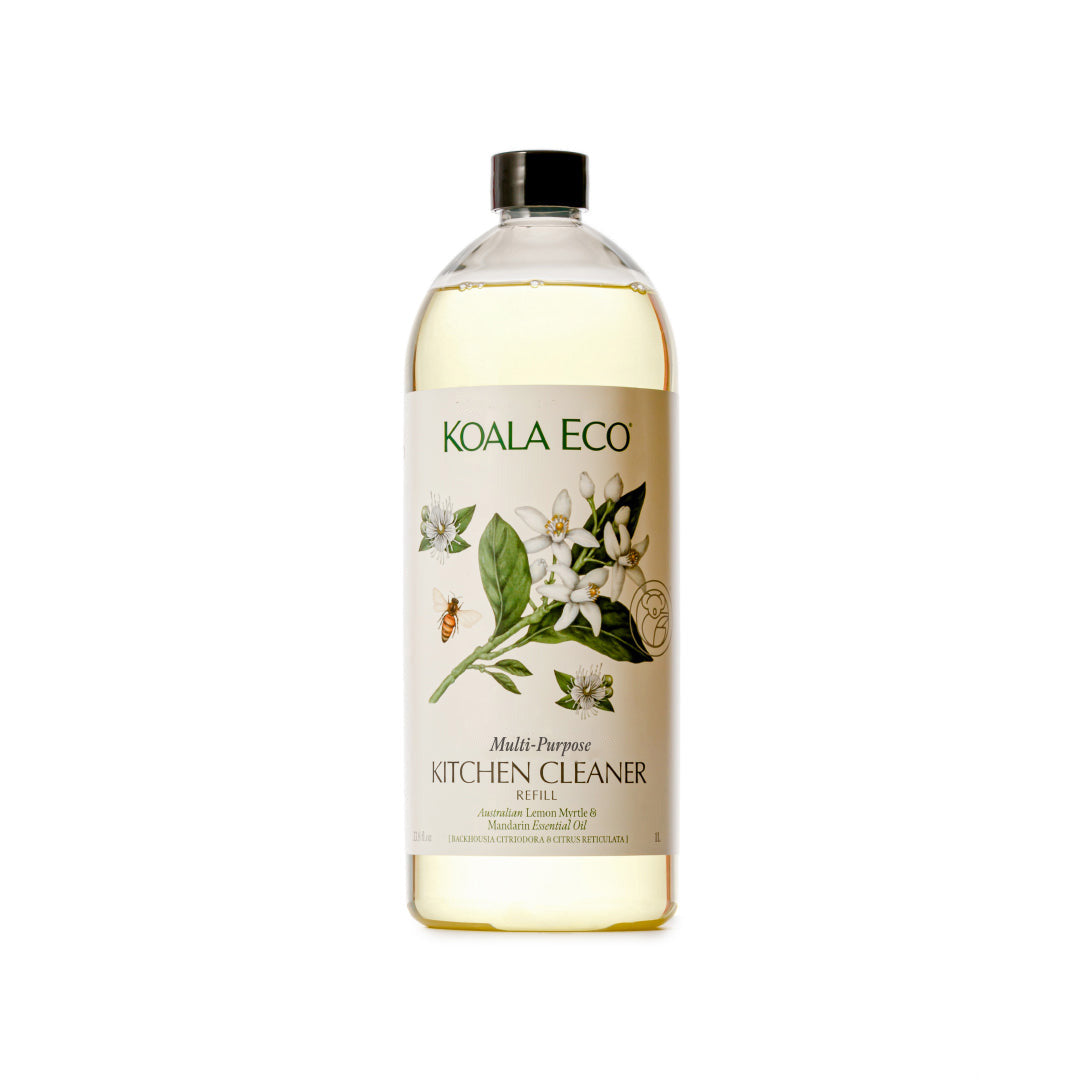
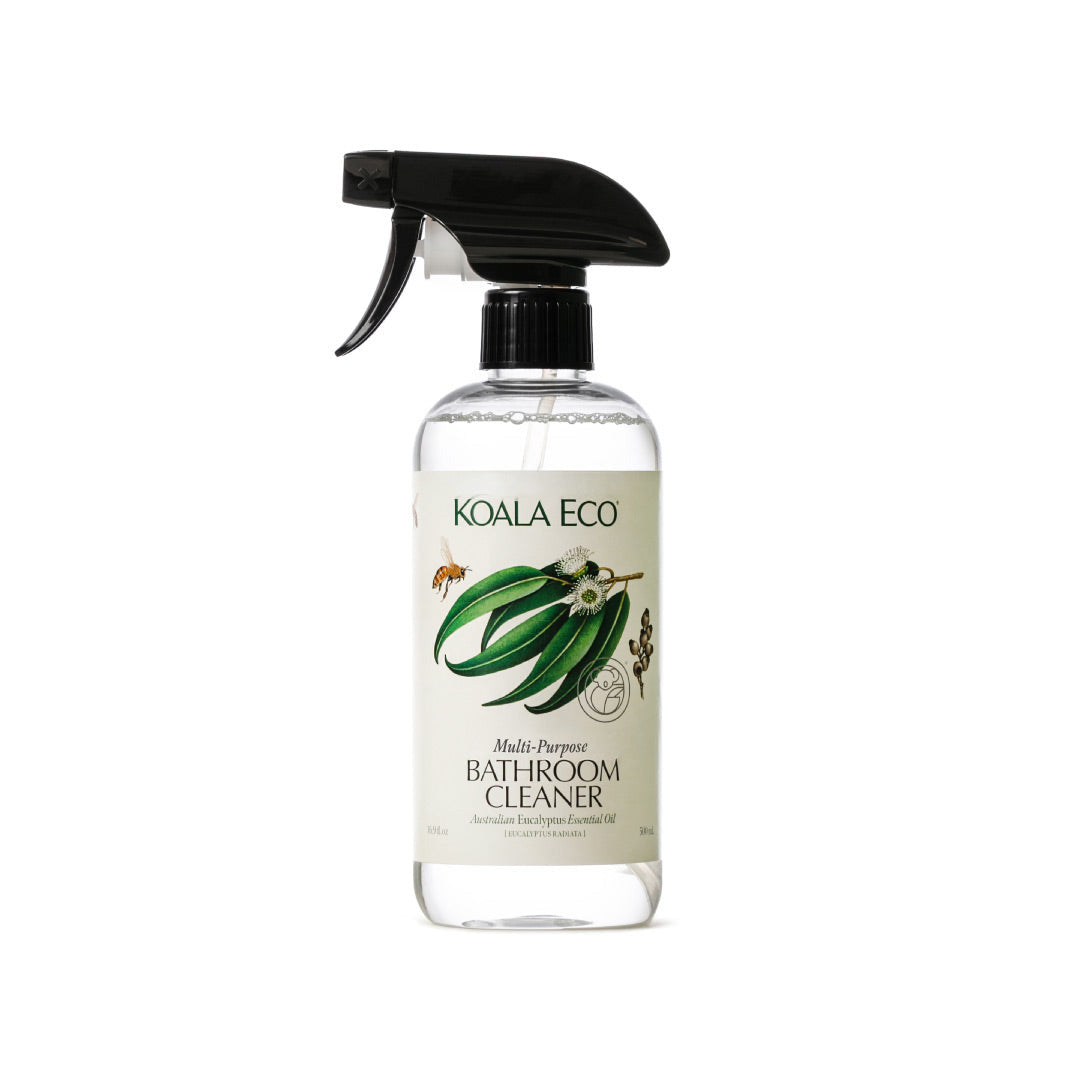
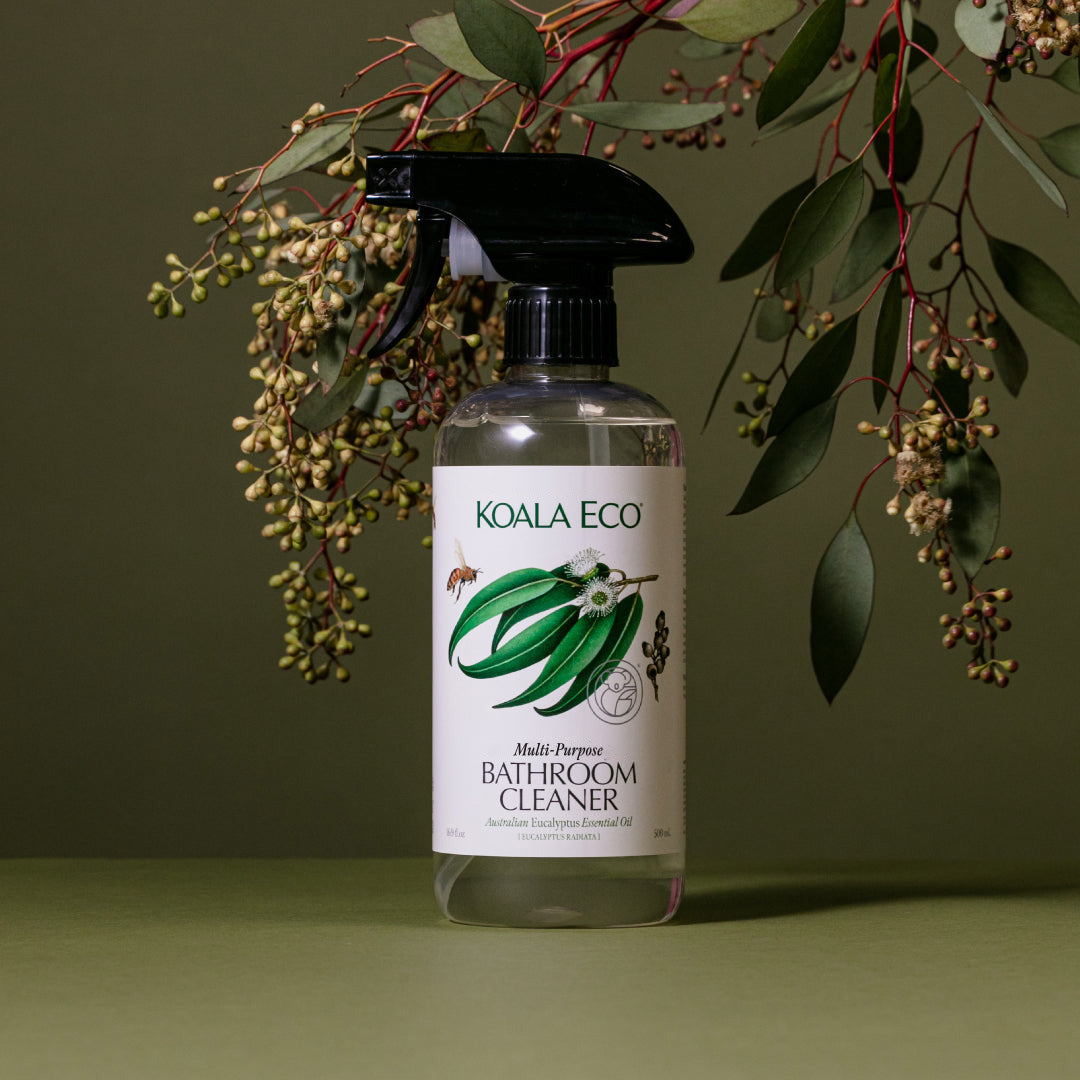
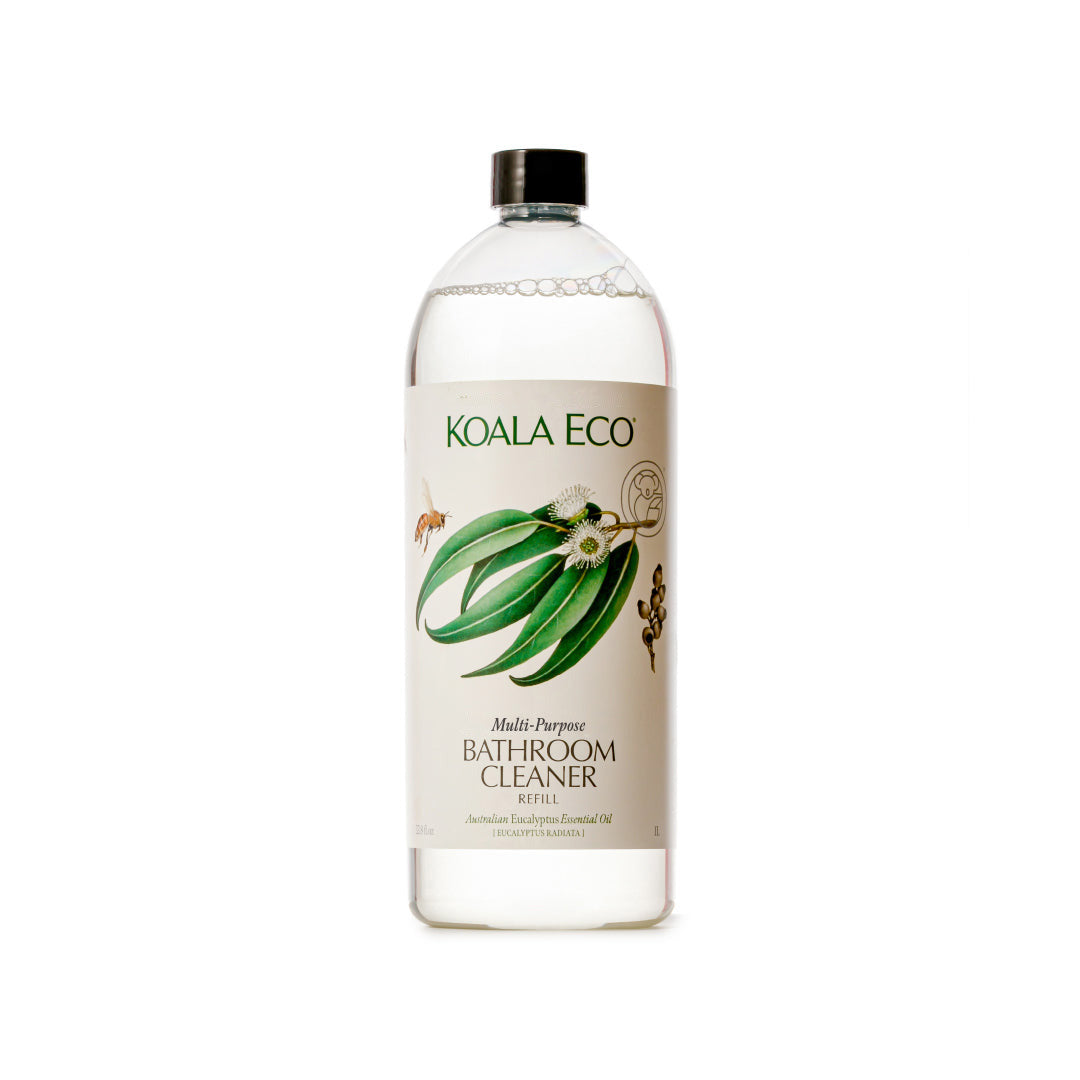
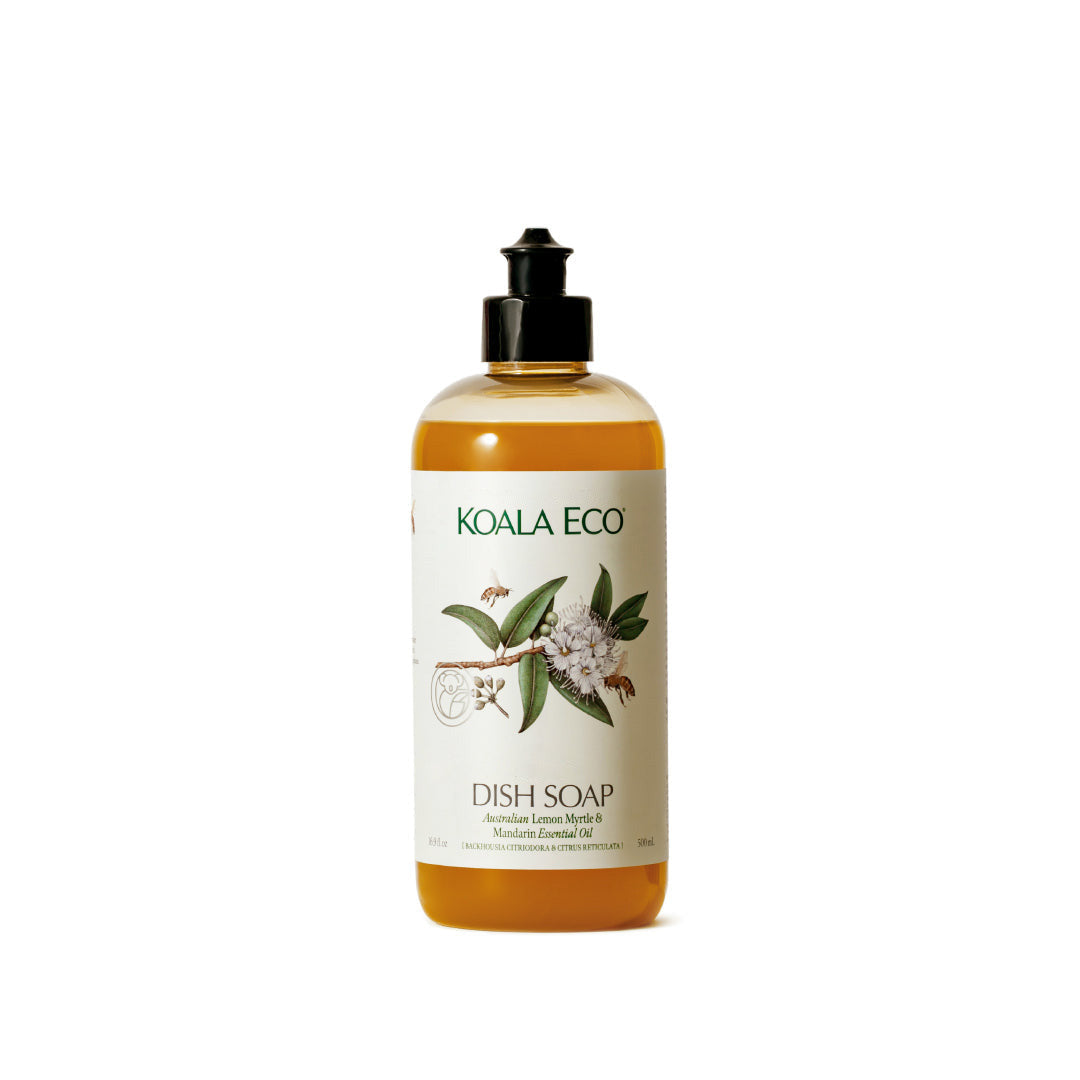
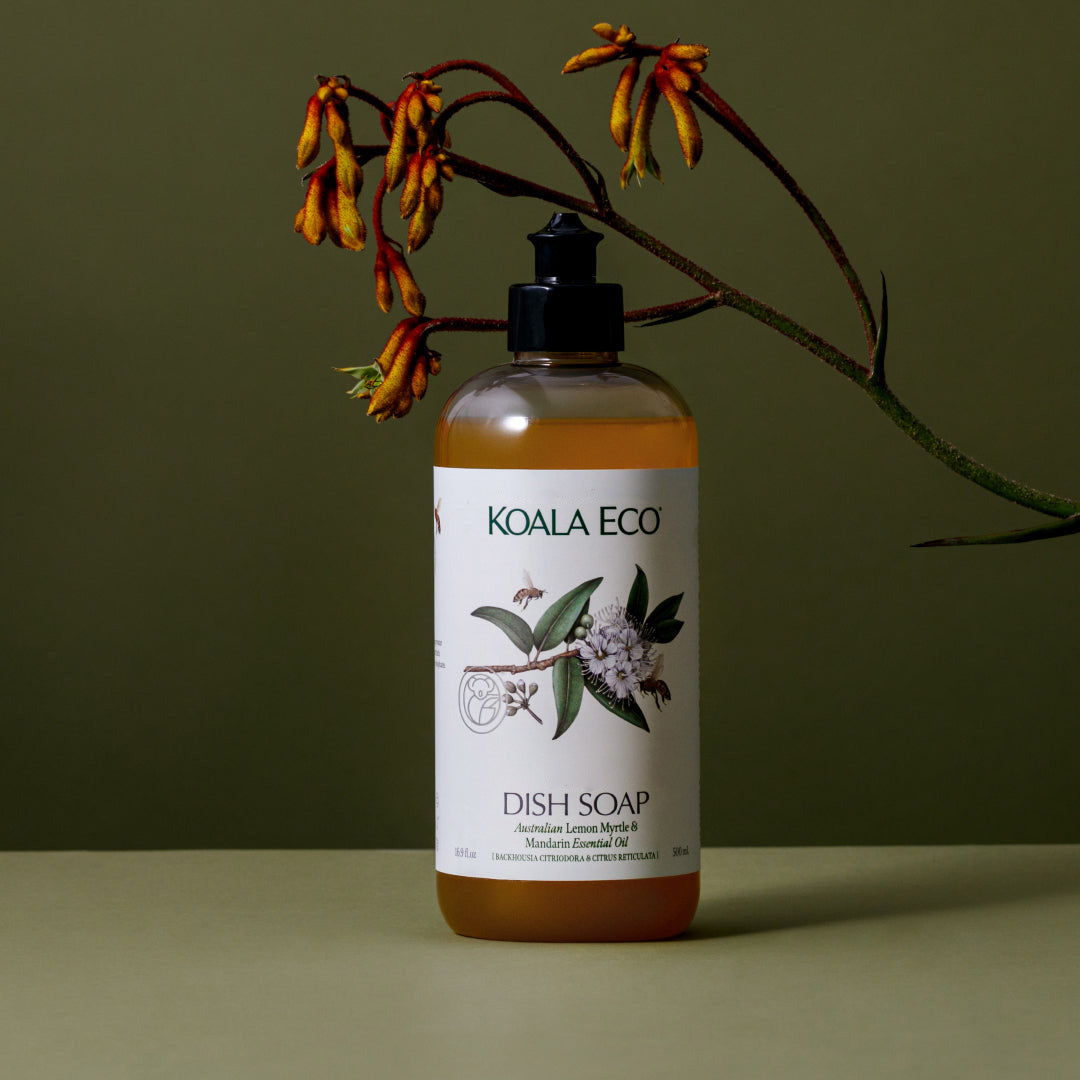
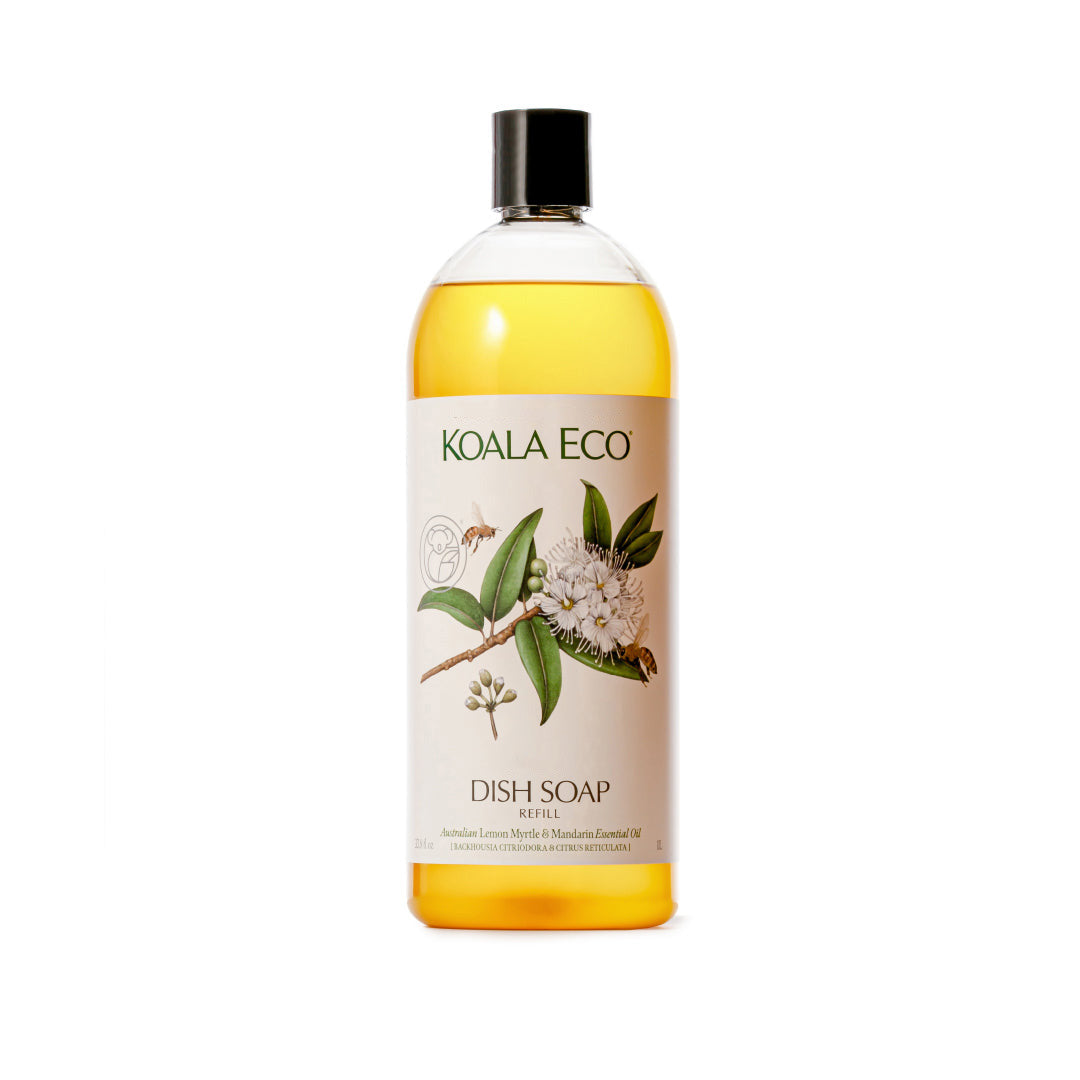
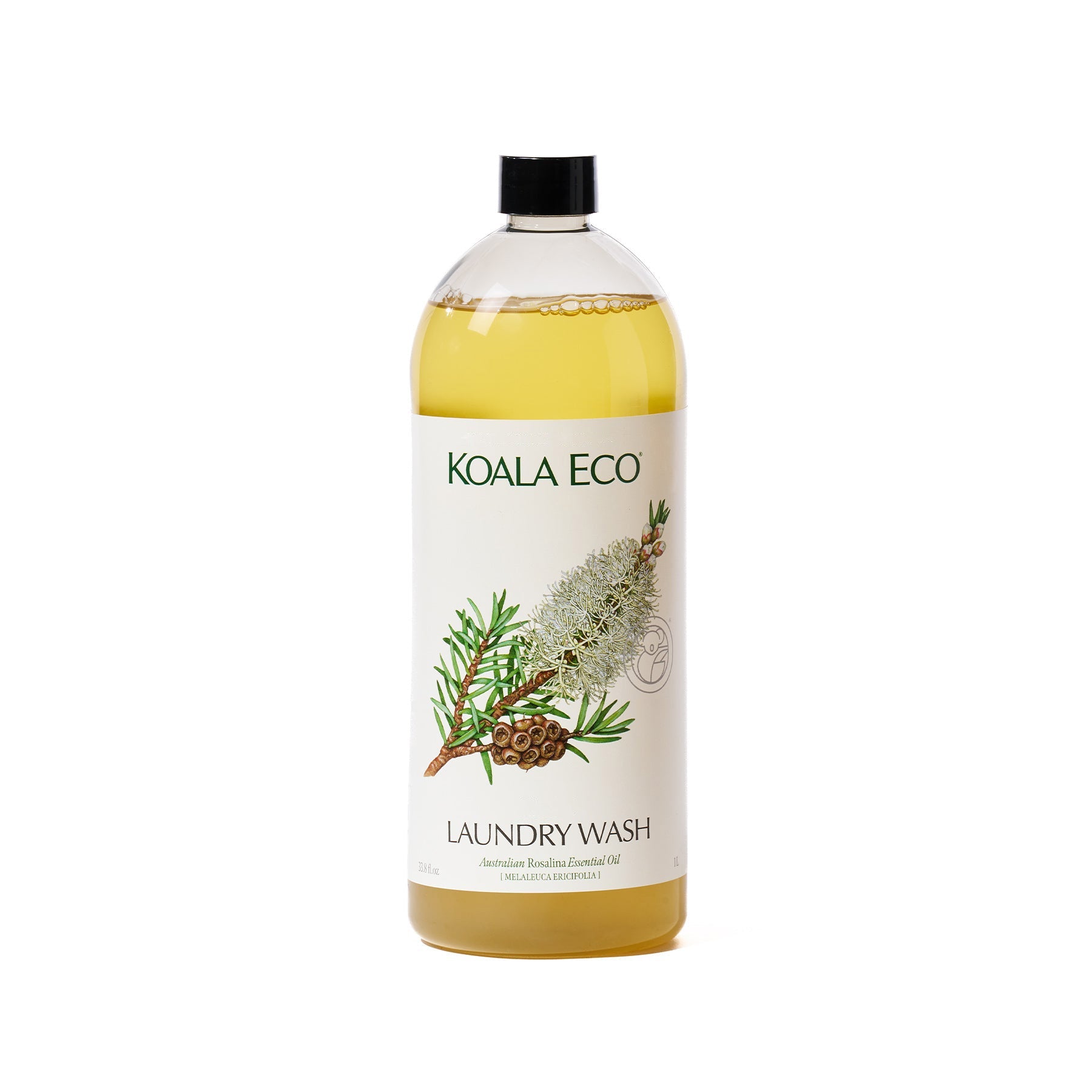
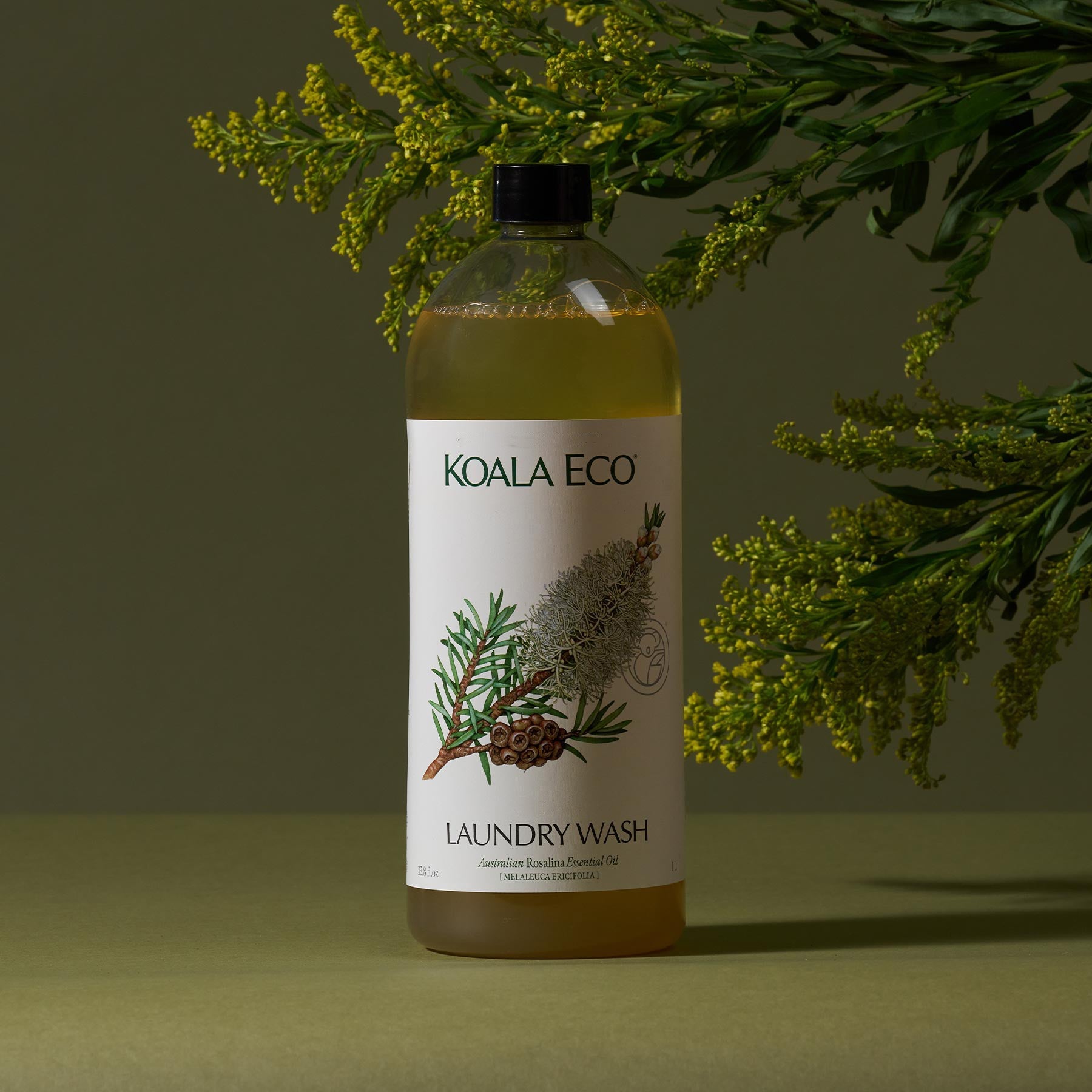
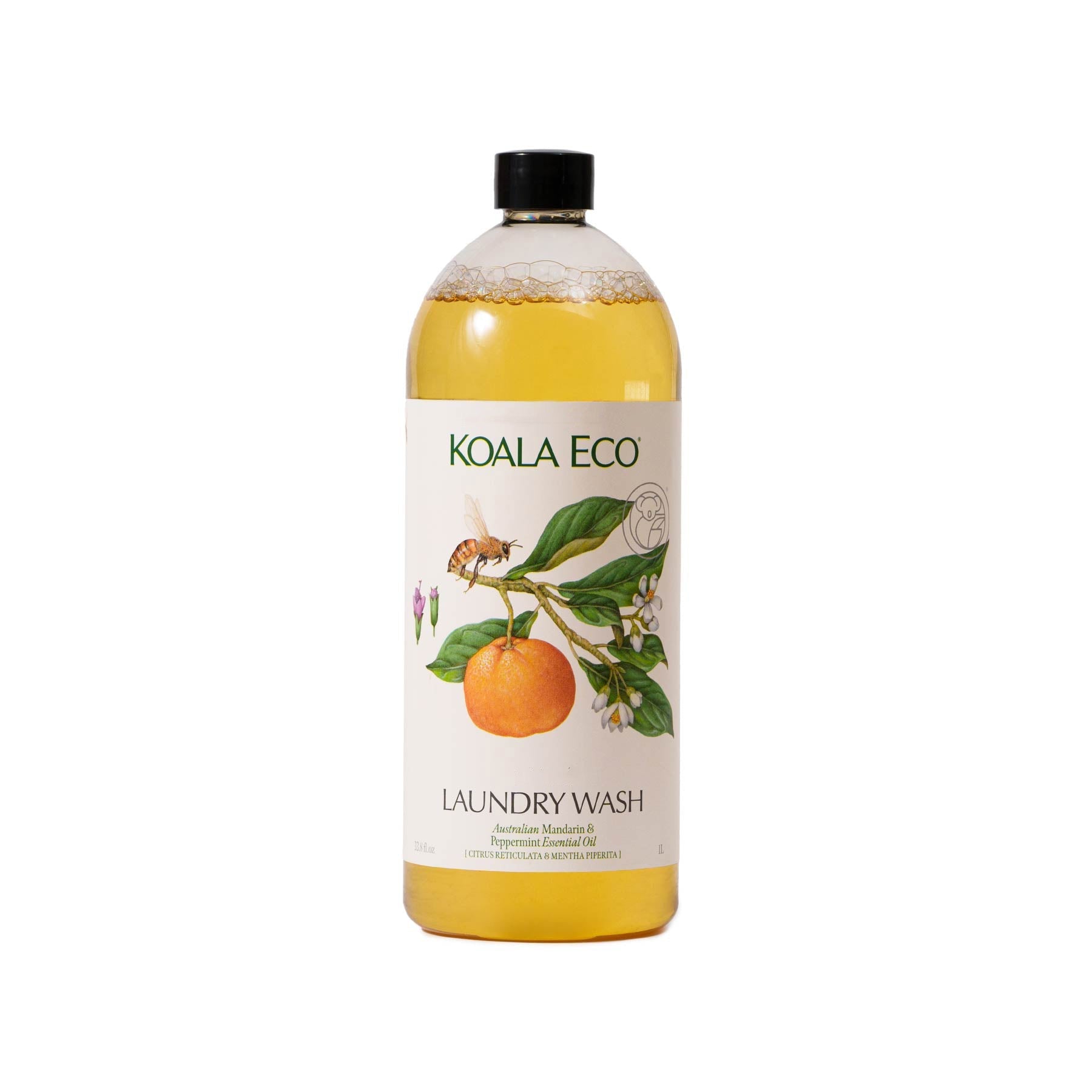
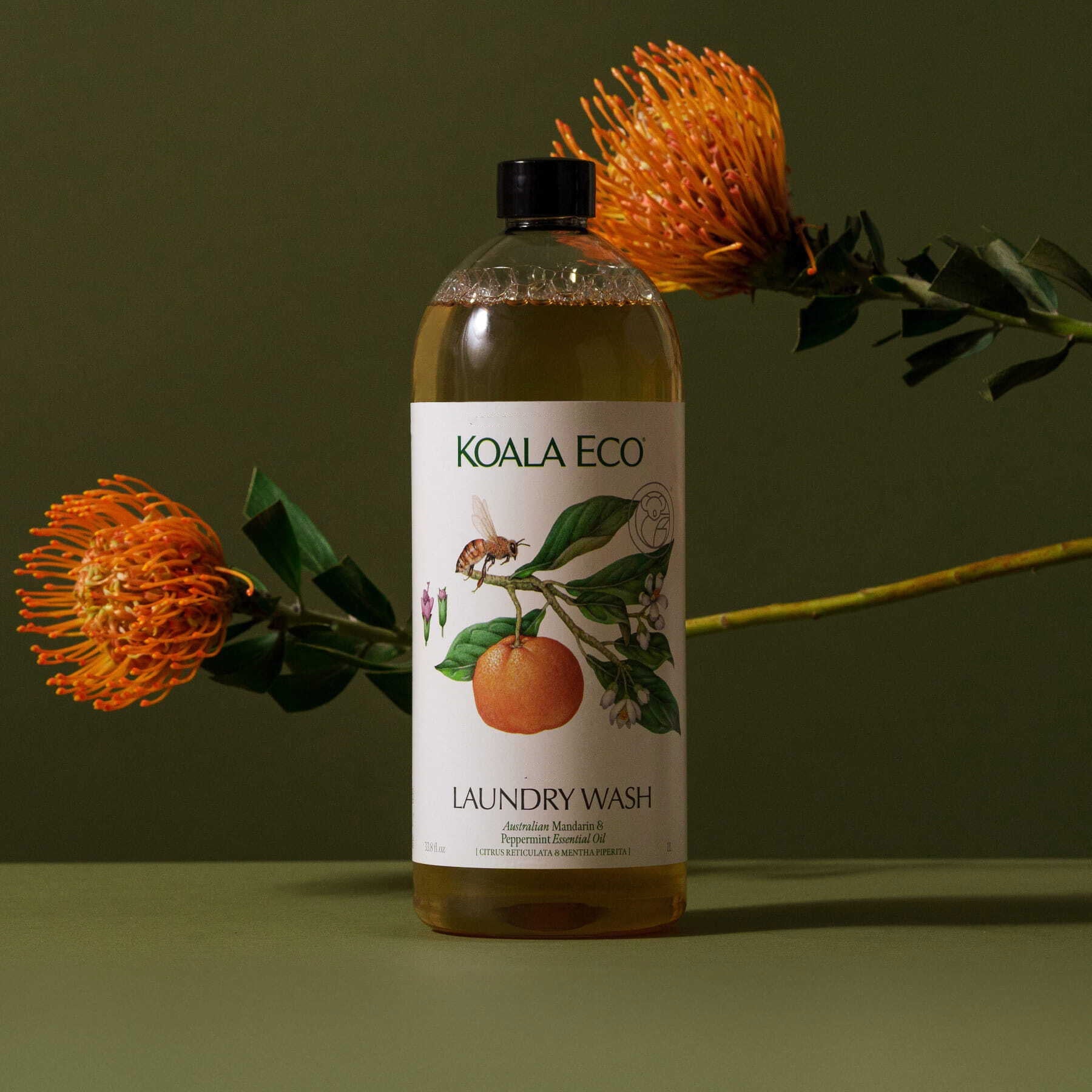
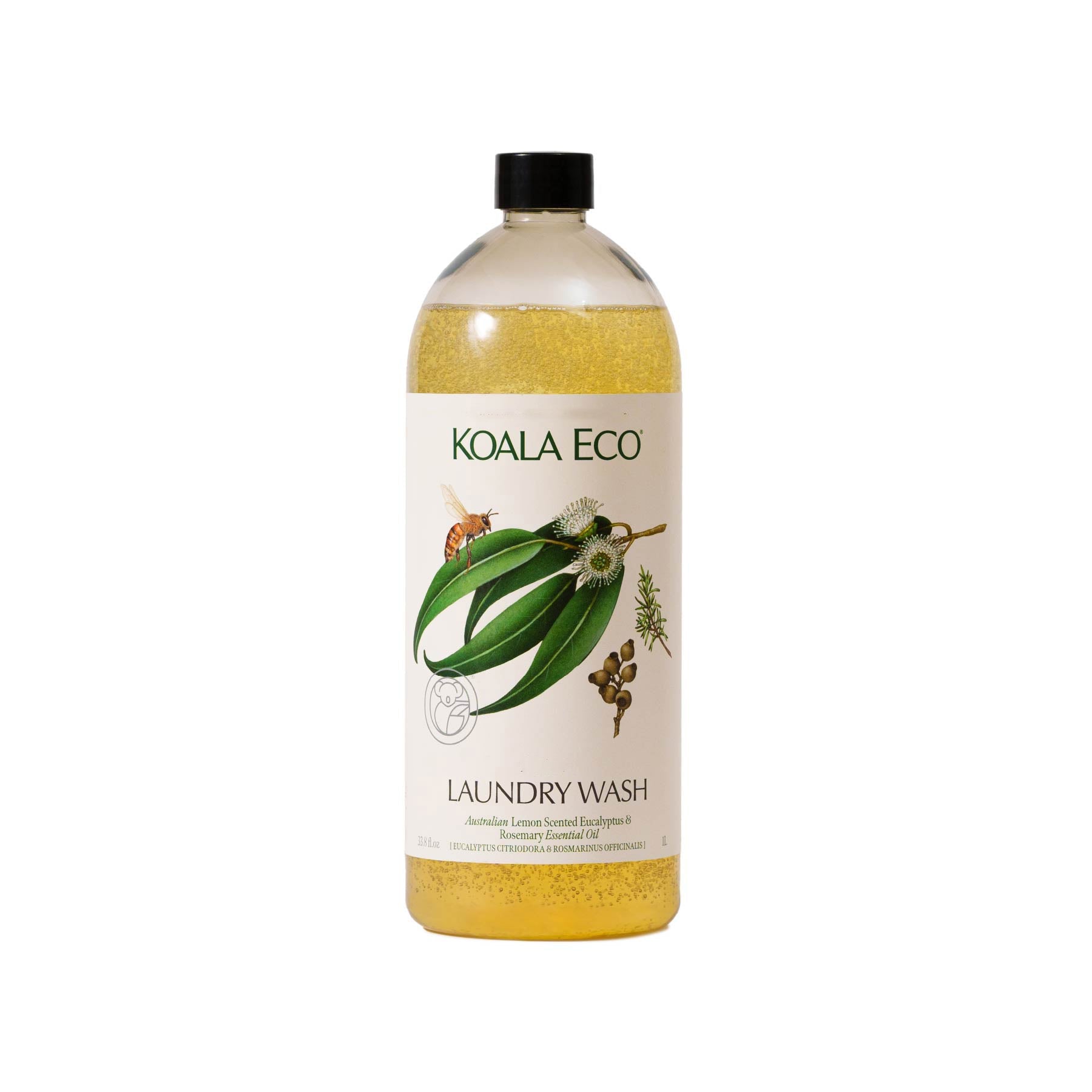
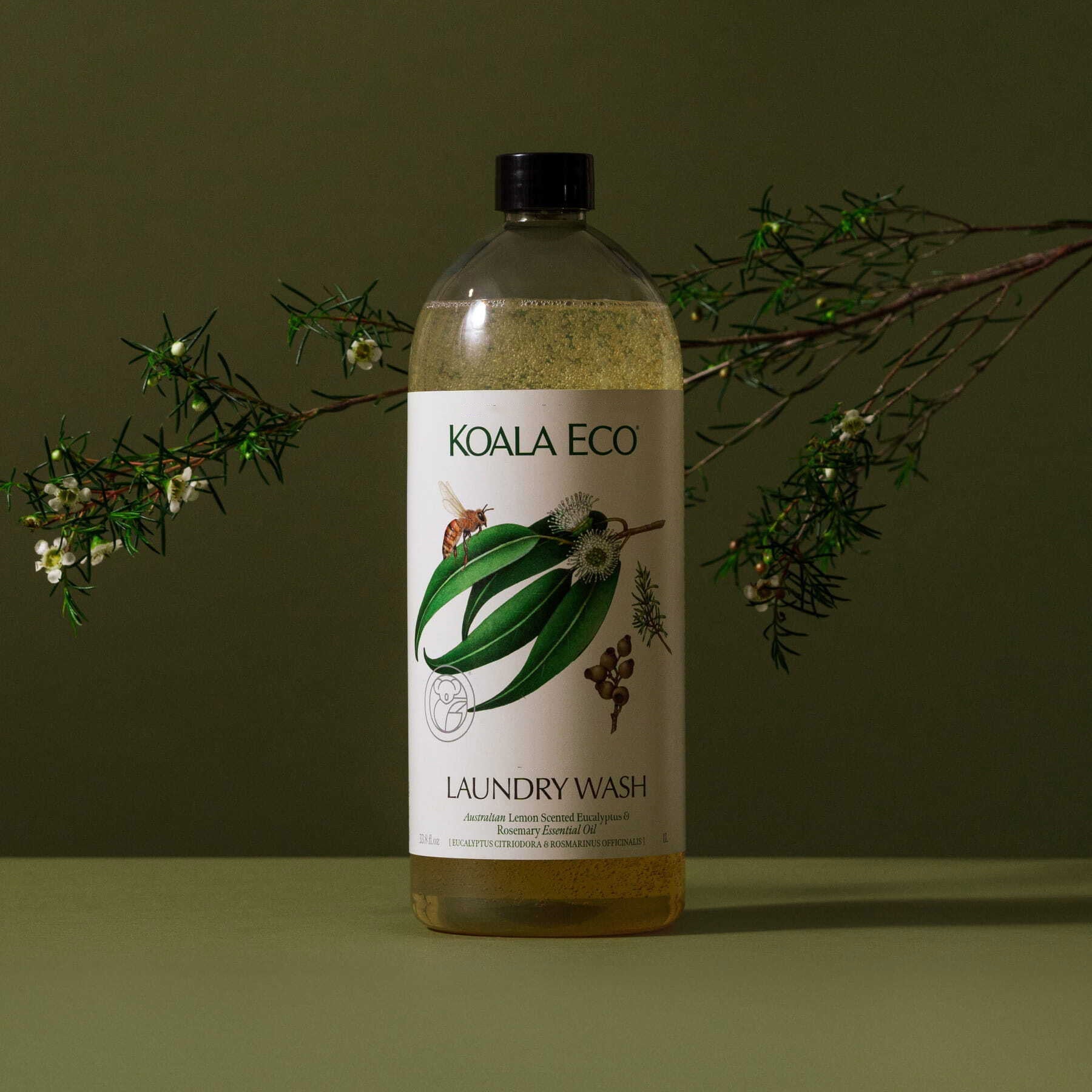
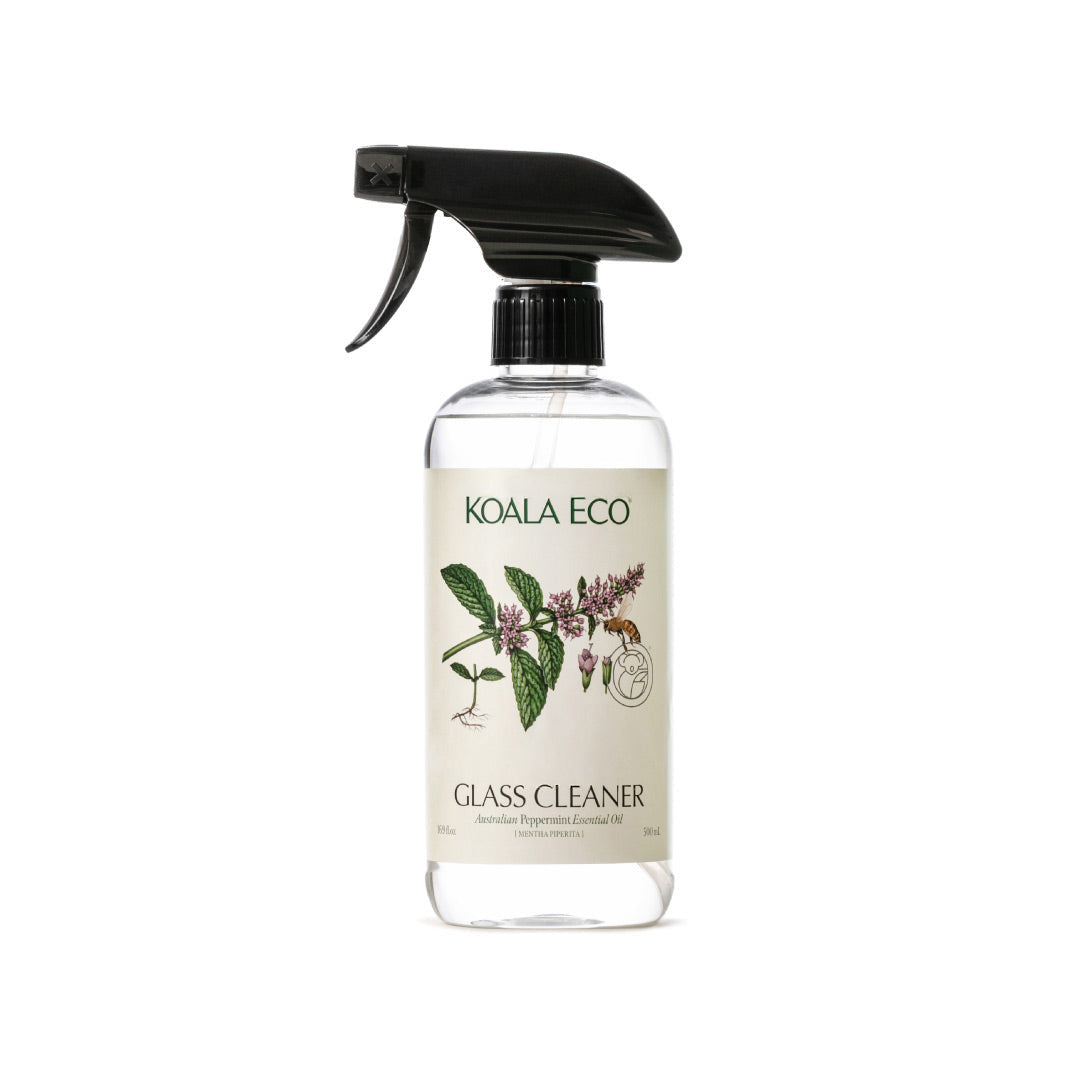
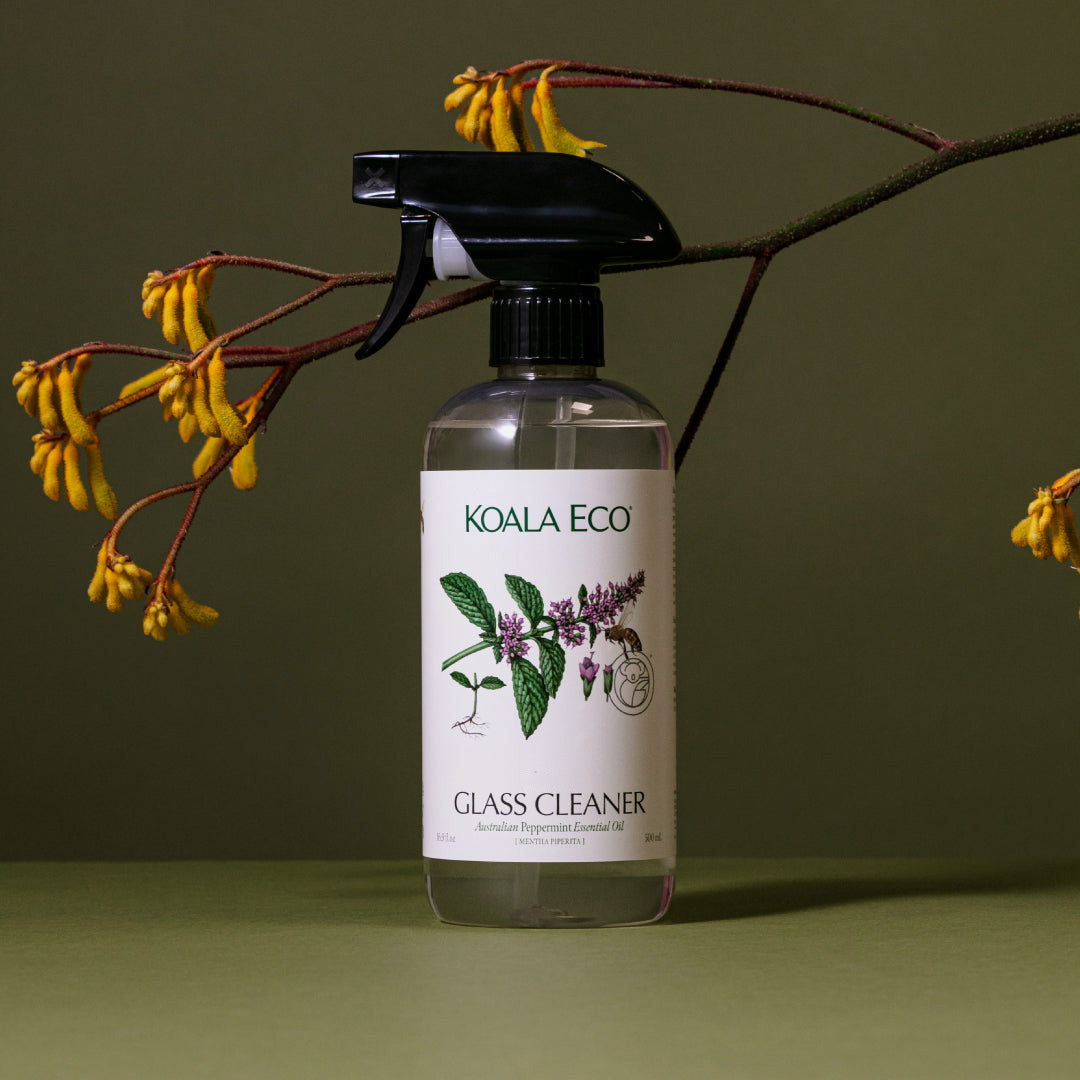
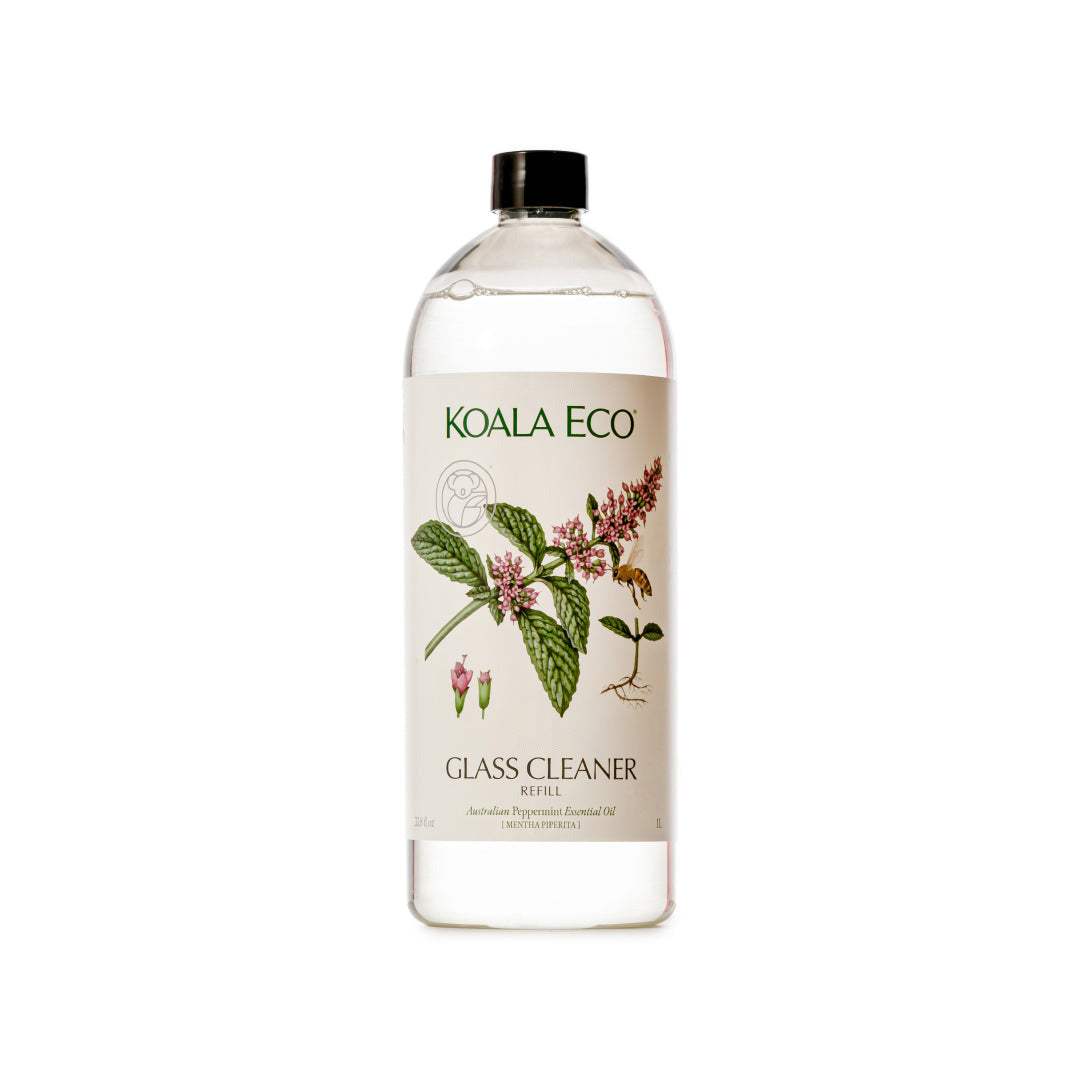
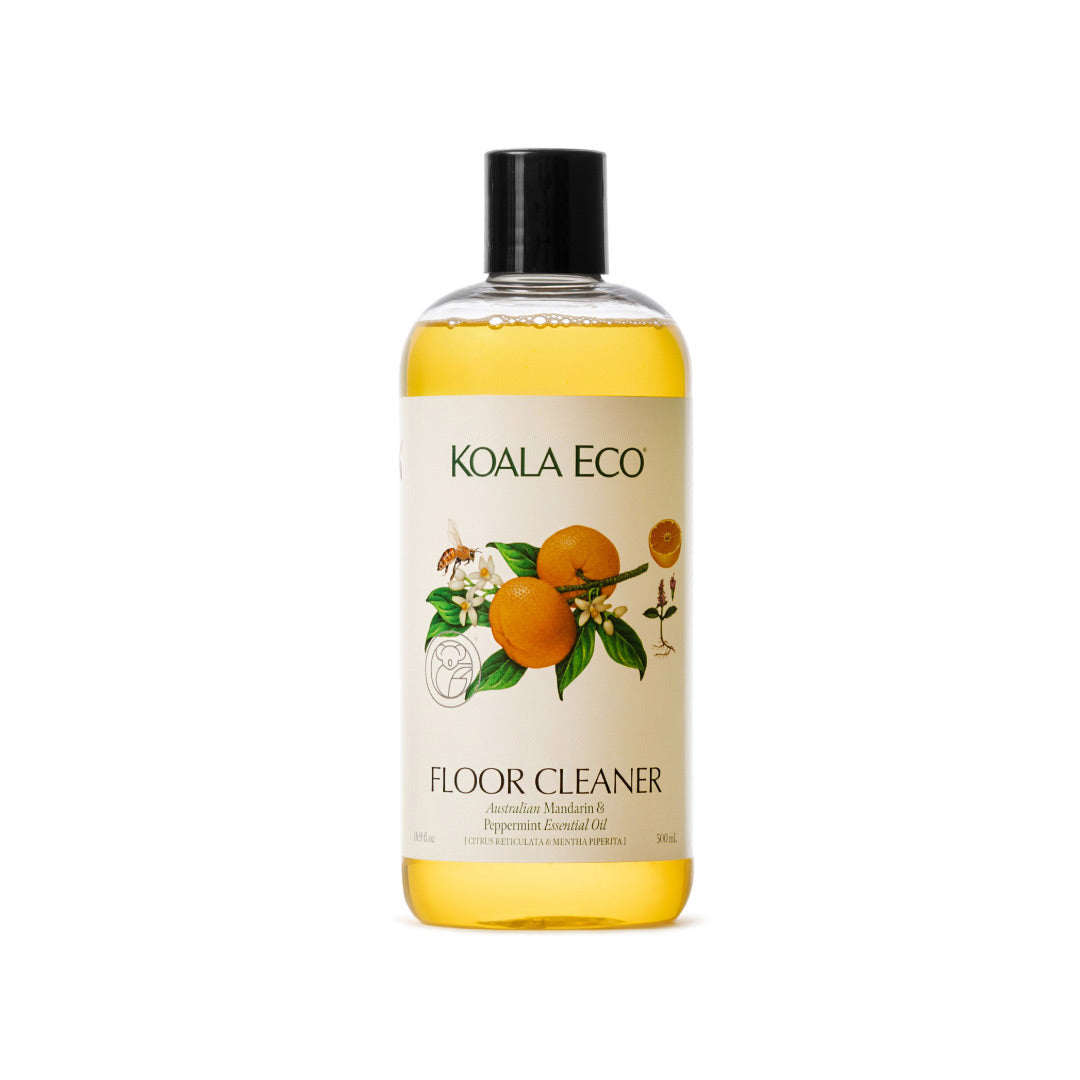
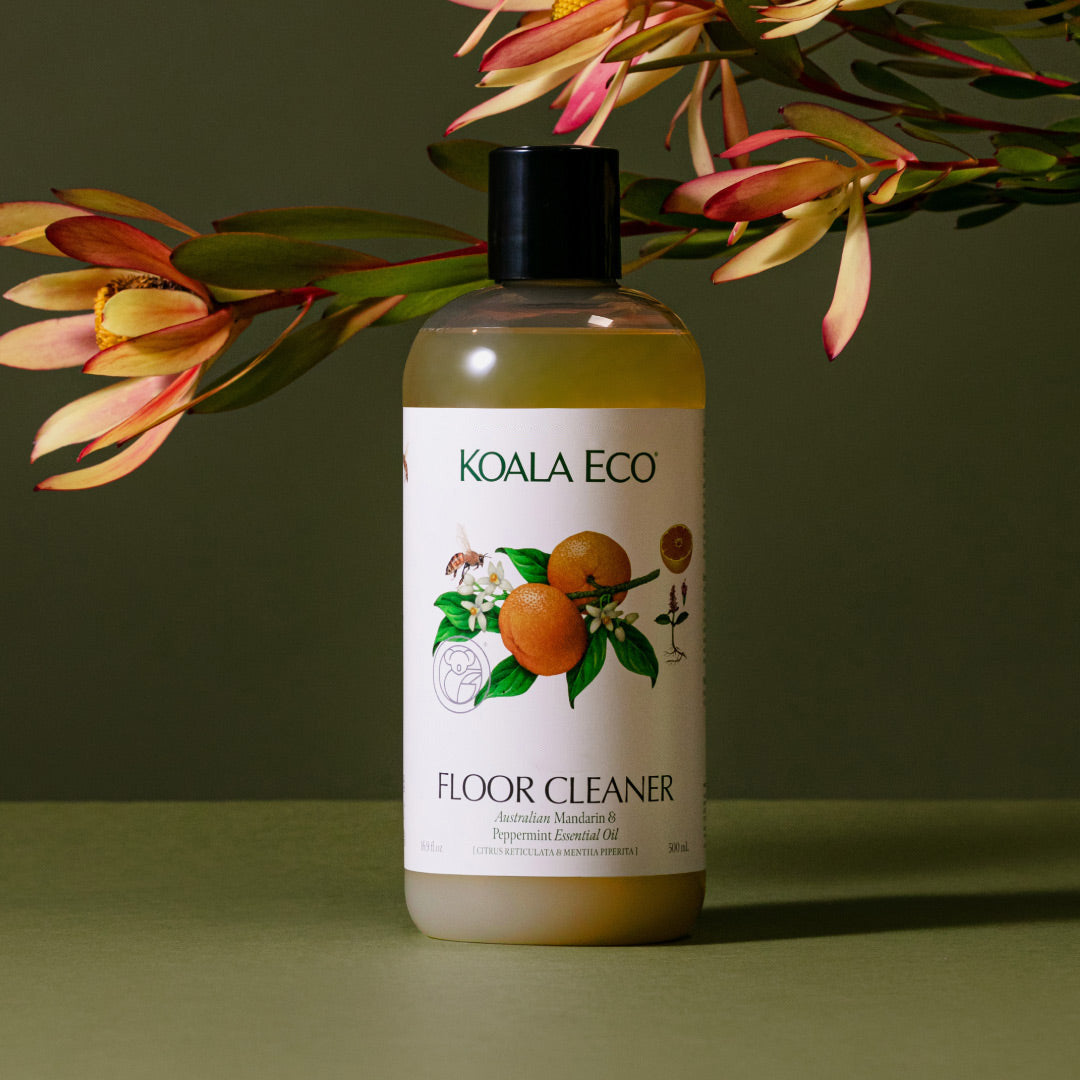
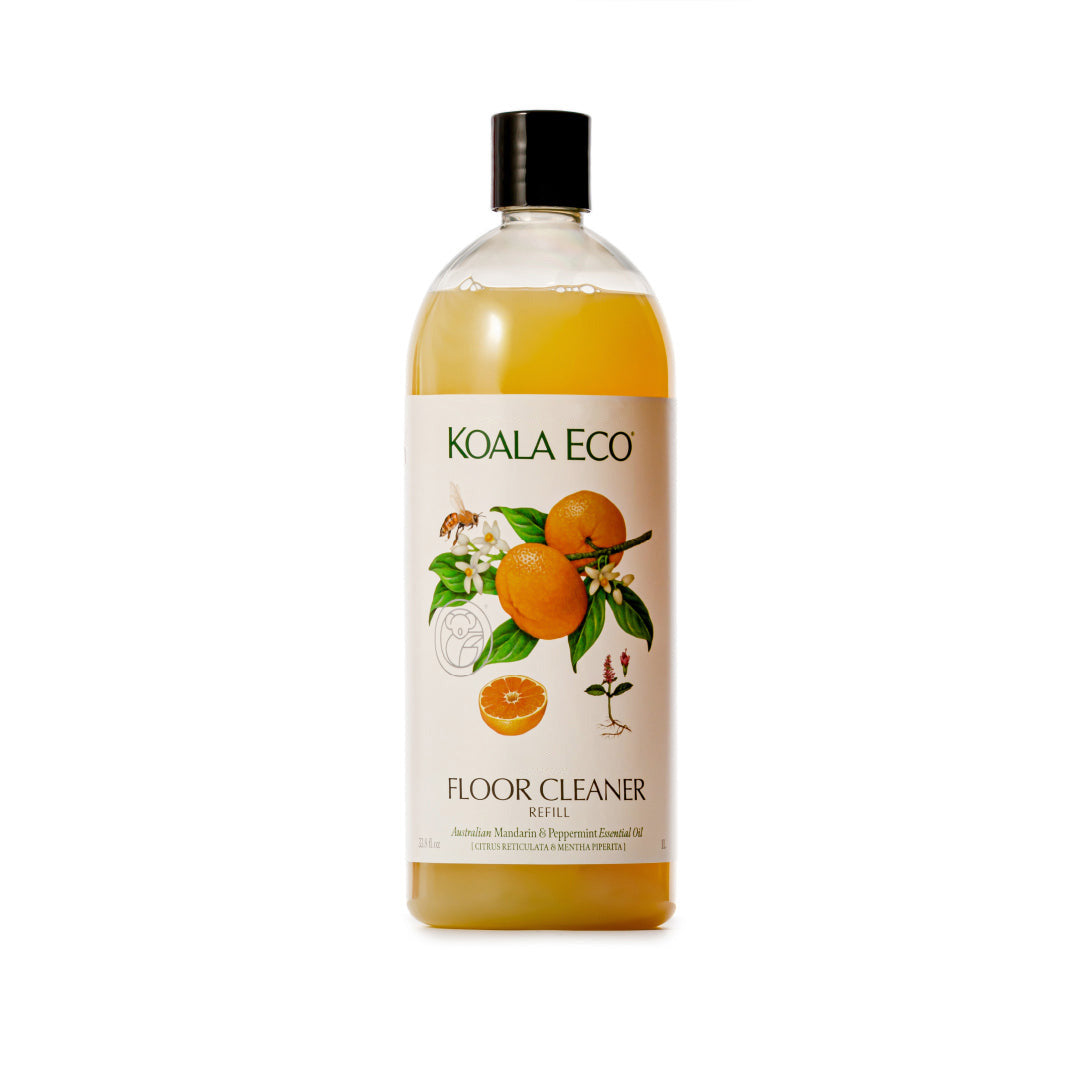
![The Sunday Reset - Inspired by Rosemary [Rosmarinus officinalis]](http://www.koalaeco.com/cdn/shop/articles/KoalaEco-2025-Sunday_Reset-Rosemary-Journal_Banner.jpg?v=1767954475&width=2000)


